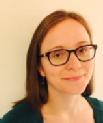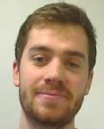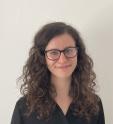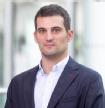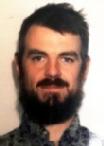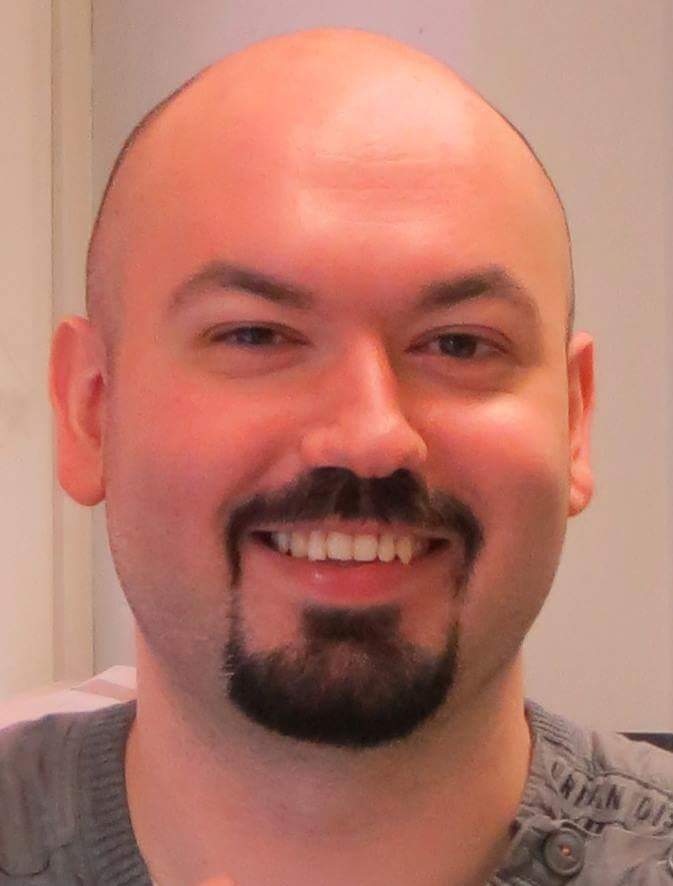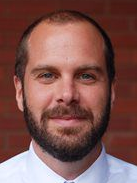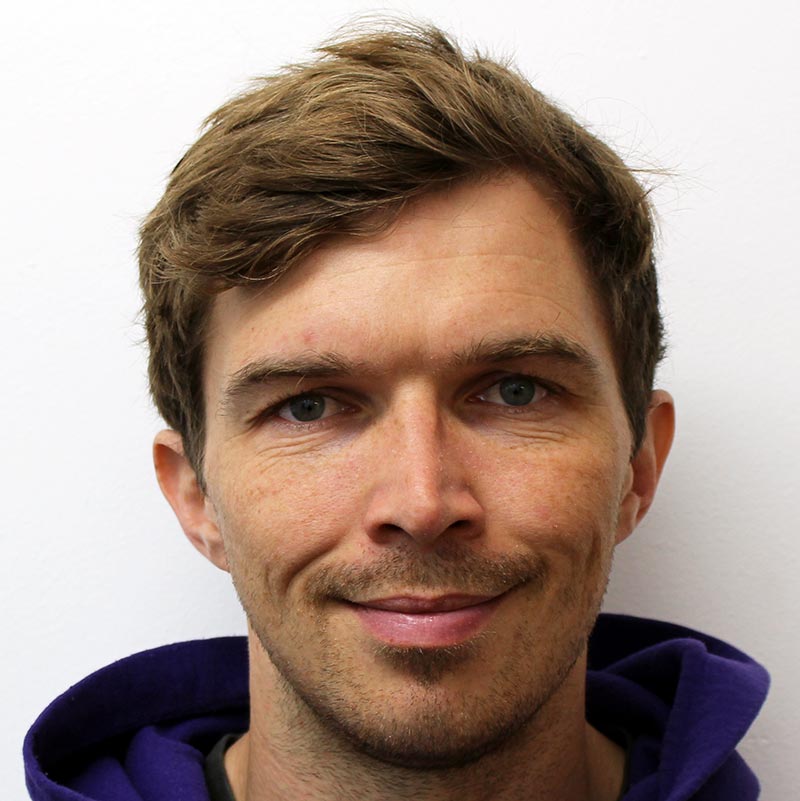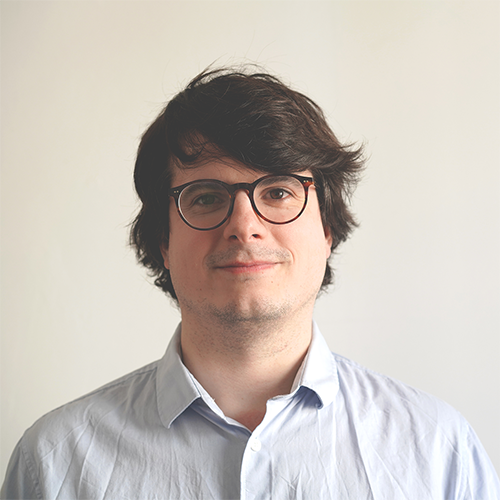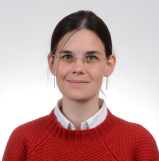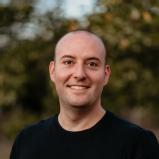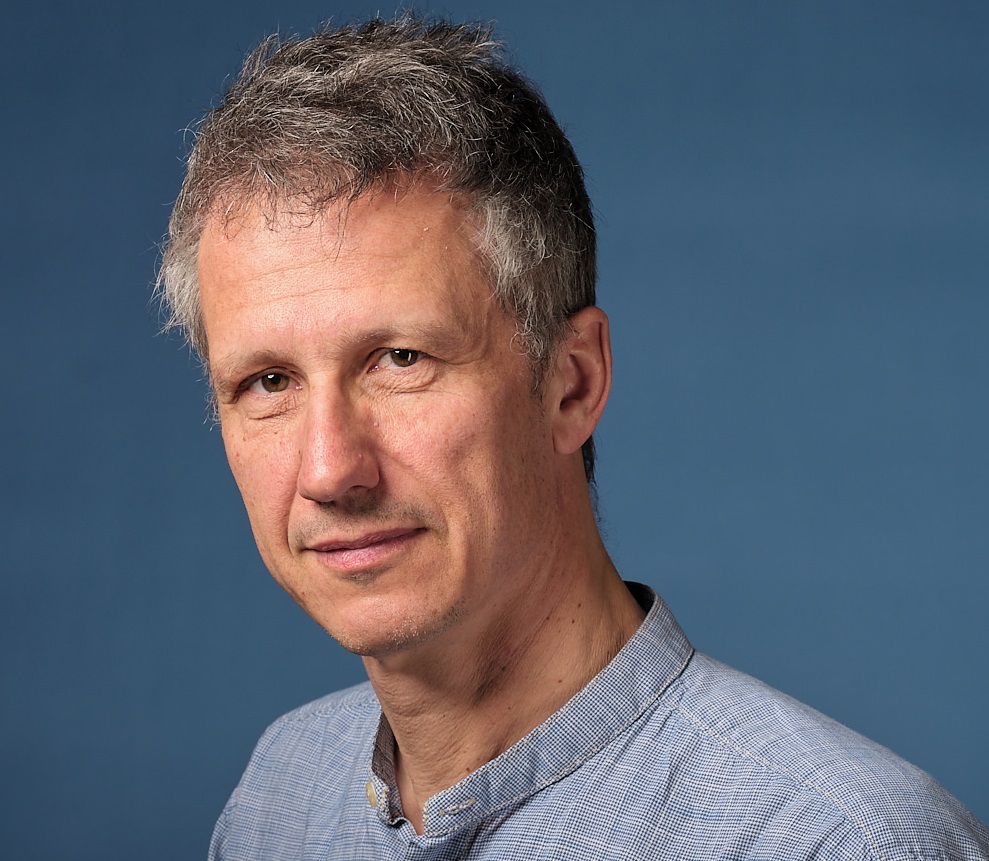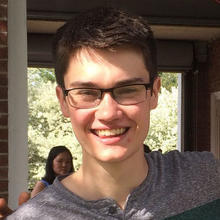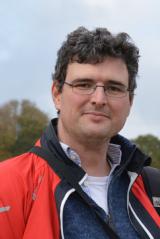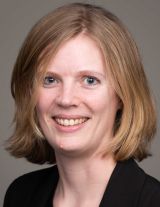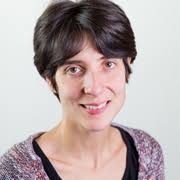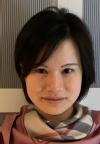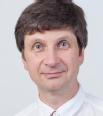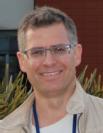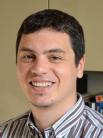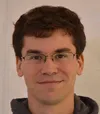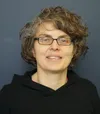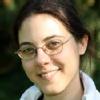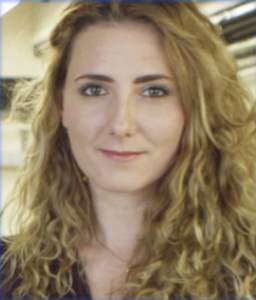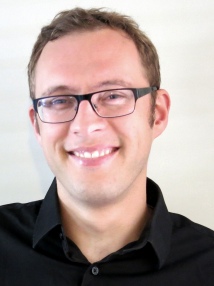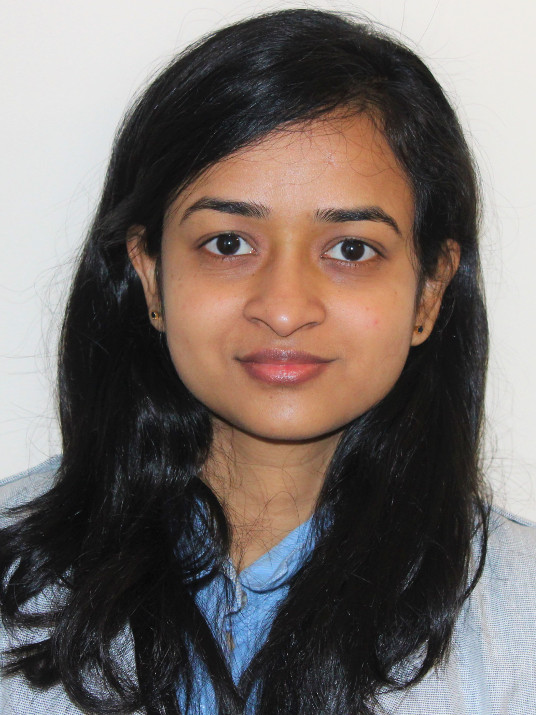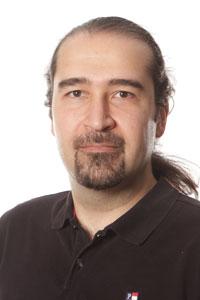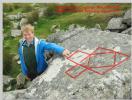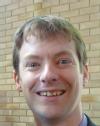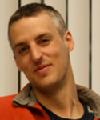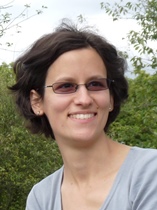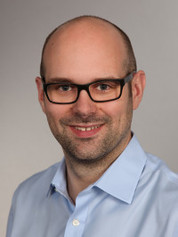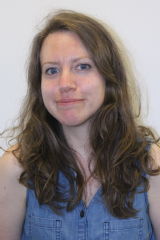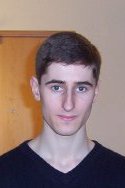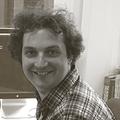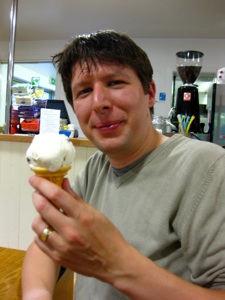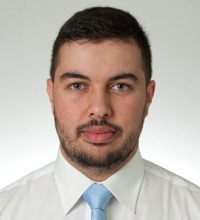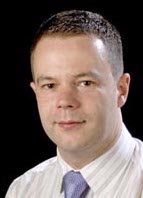Seminars
WCPM hosts regular seminars where we invite speakers working both in fundamental methodology and on applications of predictive modelling and UQ.
These seminars have been running since October 2016 and take place on Mondays at 1pm, with a focus on all aspects of research involving significant computation. The majority of seminars are held in person and for Term 2 of the 2025-2026 academic year talks will take place in IMC 0.004. Please see details of each seminar below to confirm the format.
If you would like to be kept informed of upcoming seminars, please sign up at Info | wcpm-seminar@newlistserv.warwick.ac.uk - listserv.warwick.ac.uk. Note this link does not work in all browsers - it does work in Microsoft Edge.
Details of past and upcoming presentations are below.
Upcoming Seminars
Mon 11 Nov, '24- |
WCPM: Michael Herbst, EPFL, Institute of Mathematics and Institute of MaterialsA2.05BTime: 13.00-14.00 Seminar location: A2.05B To join this meeting online click here.Link opens in a new window Title: Robust error-controlled materials simulations Abstract: Systematic first-principle simulations are nowadays a key component when developing novel materials. Usually the resulting simulation data is not directly used to drive the search, but instead employed to train a considerable cheaper statistical surrogate. In this setting of potentially millions of simulations as well as these multiple layers of approximations (physical, numerical, statistical) obtaining robust computational workflows and tracking simulation errors remains challenging. In this talk I will report on progress along two axes of research to tackle these challenges. The first concerns the development of robust numerical algorithms for density-functional theory (DFT) --- the most widely employed family of first-principle models in the field. The focus of the development here is to obtain black-box methods that are able to automatically adapt to the physics of the simulated system. Secondly, I will discuss first results on employing multi-task statistical surrogate models, a surrogatisation technique, which enables the use of data of heterogeneous quality when training a single surrogate. By combining materials simulation approaches of different cost/accuracy balances this not only unlocks computational savings to generate training data, but also allows to opportunistically exploit heterogeneous databases of already existing simulation data. In both efforts software has played a key role to provide an accessible platform fostering such interdisciplinary developments. In our work we develop and extend the density-functional toolkit (DFTK), a Julia-based DFT code, suitable to mathematical research (only 7500 lines of code), but at the same time integrated into standard tools for materials discovery. |
|
Mon 18 Nov, '24- |
Mike Chappell, WarwickA2.05BTime: 13.00-14.00 Seminar location: A2.05B To join this meeting online click here.Link opens in a new window Title: Structural Identifiability Analysis: An Important Tool in Systems Modelling Abstract: For many systems (certainly those in biology, medicine and pharmacology) the mathematical models that are generated invariably include state variables that cannot be directly measured and associated model parameters, many of which may be unknown, and which also cannot be measured. For such systems there is also often limited access for inputs or perturbations. These limitations can cause immense problems when investigating the existence of hidden pathways or attempting to estimate unknown parameters and this can severely hinder model validation. It is therefore highly desirable to have a formal approach to determine what additional inputs and/or measurements are necessary in order to reduce or remove these limitations and permit the derivation of models that can be used for practical purposes with greater confidence. Structural identifiability arises in the inverse problem of inferring from the known, or assumed, properties of a system a suitable model structure and estimates for the corresponding rate constants and other model parameters. Structural identifiability analysis considers the uniqueness of the unknown model parameters from the input-output structure corresponding to proposed experiments to collect data for parameter estimation (under an assumption of the availability of continuous, noise-free observations). This is an important, but often overlooked, theoretical prerequisite to experiment design, system identification and parameter estimation, since estimates for unidentifiable parameters are effectively meaningless. If parameter estimates are to be used to inform about intervention, inhibition or control strategies, or other critical decisions, then it is essential that the parameters be uniquely identifiable. Numerous techniques for performing a structural identifiability analysis on linear parametric models exist and this is a well-understood topic. In comparison, there are relatively few techniques available for nonlinear systems (the Taylor series approach, similarity transformation-based approaches, differential algebra techniques and the more recent observable normal form approach and symmetries approaches) and significant (symbolic) computational problems can arise, even for relatively simple models in applying these techniques. In this talk an introduction to structural identifiability analysis will be provided demonstrating the application of the techniques available to both linear and nonlinear parameterised systems. A brief overview of current research in this field will also be provided. Bio: Professor Michael Chappell | School of Engineering | University of Warwick |
|
Mon 25 Nov, '24- |
WCPM: Erik Bitzek, Max-Planck-Institut für EisenforschungA2.05BTime: 13.00-14.00 Seminar location: A2.05B To join this meeting online click here.Link opens in a new window Title: Atomistic Simulations of Dislocation – Precipitate Interactions in Ni-based Superalloys Abstract: The interaction between dislocations and precipitates is one of the archetypical hardening mechanisms in alloys and plays together with solid solution strengthening a critical role for the high (creep) strength of superalloys. Precipitation hardening in superalloys has been intensively studied, e.g., through TEM observations of interrupted creep tests, and more recently by in-situ micromechanical tests. Analytical and numerical models can successfully describe many aspects of strengthening on the meso- and macroscale. However, such models as discrete dislocation dynamics (DDD) simulations require parameters, which depend on the atomic-scale details of the dislocation – precipitate interactions. Atomistic simulations can in principle provide such information but are currently severely limited by the lack of accurate atomic interaction potentials for technologically relevant, multi-component alloys and by the difficulties to include diffusive processes. Therefore, there are currently still relatively few atomistic simulations of dislocation-precipitate interactions in superalloys.
Here we present an overview of our atomistic simulations in the Ni-Al-(Re) system as model for γ/γ’ strengthened alloys. We show that while parameters like the cutting-stress for dislocations to enter γ’ precipitates can be obtained from idealized geometries, the details of the γ/γ’ interface structure, the precipitate morphology and arrangement can severely influence the dislocation-precipitate interactions. In particular the curvature of the γ/γ’ interface can affect the misfit dislocation network, as demonstrated using experimentally obtained γ/γ’ interface morphologies. The local interface orientation not only alters the misfit dislocation core structure but can also facilitate the formation of ⟨100⟩ dislocations at the interface. Furthermore, the spatial arrangement and size-distribution of spherical γ’ precipitates, e.g., in disk-alloys, can lead to synergistic effects that are not present in the typical models of precipitate strengthening based on the interaction of straight dislocations with a regular array of uniform precipitates. Certain Ni-base superalloys furthermore form γ precipitates inside the cuboidal γ’ phase. Our simulations suggest that the misfit stresses caused by the γ precipitates reduce the yield stress of γ’ cubes subjected to nanomechanical compression tests. The situation is, however, different when the deformation is not controlled by the nucleation of dislocations, e.g., when the γ’ cubes are embedded in a dislocation-containing γ matrix. In this case, the γ precipitates lead to an additional hardening that is also observed experimentally. |
|
Mon 2 Dec, '24- |
WCPM: Lucy Whalley, NorthumbriaA2.05BTime: 13.00-14.00 Seminar location: A2.05B To join this meeting online click here.Link opens in a new window Title: Predicting the phase stability of BaZrS3 using a range of approaches: from harmonic lattice dynamics to the neuroevolution-potential framework Abstract: Chalcogenide perovskite materials are highly robust, non-toxic and show strong light absorption but device development is hindered by the high-temperatures typically required for synthesis [1]. I will present our research, based on first-principles calculations and machine learnt interatomic potentials, which explores the thermodynamics of BaZrS3 phase formation [2,3,5]. I will consider stability against competing binary phases as a function of temperature and sulfur partial pressure [2], and compare our computational predictions against recent experimental measurements. I will also highlight the presence of low-dimensional Ruddlesden- Popper materials Ban+1ZrnS3n+1, and discuss how first-principles predictions of Raman spectra can be used to support their experimental characterisation [3]. Finally, I will share our latest work using the Neuroevolution Potential framework [4] and molecular dynamics to explore octahedral-tilt driven phase transitions in BaZrS3 [5].
[1] K. Sopiha, C. Comparotto, J. A. Márquez et al., Advanced Optical Materials, 2022, 10 (3), 2101704
[2] P. Kayastha, G. Longo, L.D Whalley et al., Solar RRL, 2023, 7 (9), 2201078
[3] P. Kayastha, G. Longo, L. D. Whalley, ACS Applied Energy Materials, 2024, ASAP article, DOI: 10.1021/acsaem.3c03208
[4] Z. Fan, Z. Zeng, C. Zhang et al., Physical Review B, 2021, 104 (10), 104309
[5] P. Kayastha, E. Fransson, P. Erhart, L.D. Whalley, In Prep.
Bio: Lucy's research uses first-principles methods to predict the properties of energy materials and link macroscopic observables (such as open circuit voltage or thermodynamic stability) with microscopic processes (such as electron capture or electron-phonon coupling). She is an Assistant Professor in Physics at Northumbria University and an Associate Editor at the Journal of Open Source Software. |
|
Mon 13 Jan, '25- |
WCPM: Naomi Hirayama, WarwickA2.05BLocation: A2.05B (there will be an informal sandwich lunch outside D2.02 at 12.30) Time: 13.00-14.00 To join this meeting online click here. Title: Theoretical Study on Local Structures in Fe-based Amorphous Alloys Abstract: Local atomic arrangements, such as short-range order and medium-range order, are crucial in determining the physical properties of amorphous materials. Direct experimental observation of these microscopic structures is challenging; nevertheless, computational approaches such as molecular dynamics simulations afford valuable insights. This study investigates Fe–Si–B amorphous alloys, recognised for their excellent soft magnetic properties, making them promising candidates for high-efficiency motor core materials. However, their challenging manufacturability has limited their widespread adoption. Addressing this issue requires a deeper understanding of the origins of their mechanical properties. In our study, melt-quench simulations were conducted using a machine learning potential based on the Gaussian approximation potential (GAP). The radial distribution functions obtained from these simulations closely matched the experimental data. The results revealed that B-centred clusters predominantly exhibit anti-prism and trigonal prism structures, while the Si-centred clusters are characterised by icosahedral and related geometries. These cluster structures formed rapidly near the glass transition temperature during quenching and subsequently coalesced into networks. The modes of connection between cluster pairs—vertex, edge, face, and multipoint sharing—were found to depend on the cluster type. The hierarchical ordering observed in these alloys should play a crucial role in understanding their mechanical behaviour. This study highlights the potential of GAP for uncovering the structural properties of amorphous alloys, offering a pathway to improve their manufacturability and broader applicability. Bio: Background · 2020–Present: Associate Professor (Next Generation Tatara Co-Creation Centre, Shimane University) · 2009–2020: Project Researcher (University of Tokyo, Osaka University, and others); Assistant Professor (Tokyo University of Science, Tokyo Metropolitan University) · March 2009: PhD in Science (Ochanomizu University, Tokyo, Japan) Research Field · Amorphous alloys: Investigation of structural and mechanical properties using machine-learning molecular dynamics simulations · Thermoelectric materials: Calculation of electronic and thermoelectric properties based on first-principles calculations. |
|
Mon 20 Jan, '25- |
WCPM: Jakub Lengiewicz, Luxembourg Institute of Science and TechnologyA2.05BLocation: A2.05B (there will be an informal sandwich lunch outside D2.02 at 12.30) Time: 13.00-14.00 To join this meeting online click here. Link opens in a new windowLink opens in a new window Title: Towards Deep Learning Surrogate Modelling with Uncertainty Quantification in Mechanics In this talk, I will present recent advances in using deep learning to build fast and reliable surrogate models for computational mechanics. These methods aim to accelerate predictions of large-deformation responses in solids—scenarios where traditional finite element analysis can be prohibitively expensive—while also providing robust uncertainty estimates. I will discuss a variety of neural architectures, including convolutional and graph-based U-Nets, as well as attention-based models, that can accurately learn non-linear mechanical behaviour directly from simulation data. In addition, I will show how Bayesian techniques enable probabilistic modelling, offering meaningful confidence measures in complex predictive tasks. Together, these approaches pave the way toward efficient, data-driven computational modelling that is both fast and reliable, with potential applications in engineering design, materials science, and beyond. Bio: Jakub Lengiewicz is a Senior Research and Technology Scientist at the Luxembourg Institute of Science and Technology and is affiliated with the Institute of Fundamental Technological Research of the Polish Academy of Sciences. He holds a background in Computer Science, a PhD in Mechanics, and a habilitation in Information and Communication Technologies. His research expertise spans computational methods in mechanics and robotics, with contributions in finite element techniques for contact mechanics and tribology, as well as distributed algorithms for modular robotic systems. Since his Marie Skłodowska-Curie Postdoctoral Fellowship at the University of Luxembourg (initiated in 2019), he has focused on deep learning surrogate modelling in mechanics, a pursuit he continues at the Luxembourg Institute of Science and Technology |
|
Mon 27 Jan, '25- |
WCPM: James Kermode, WarwickA2.05BLocation: A2.05B (there will be an informal sandwich lunch outside D2.02 at 12.30) Time: 13.00-14.00 To join this meeting online click here. Title: Applying Scientific Machine Learning at the Electronic and Atomistic Scales to Model Materials Failure Processes Abstract:Scientific machine learning (SciML) combines the positive features of mechanistic and data-driven approaches. I will describe recent work to leverage its advantages to model materials failure processes such as fracture and plasticity which simultaneously require large model systems and high accuracy by constructing efficient surrogates at the electronic structure [1,2] and interatomic potential scales [3-7]. I will also discuss the importance of robust uncertainty estimates when using surrogate models [3]. The talk will be illustrated with ongoing industrially relevant applications, e.g. austenitic stainless steels subject to radiation damage [4] and point/extended defects in BCC metals [5,6]. I will present some results from fine-tuning the MACE-MP-0 foundation model [7] to improve its (already reasonable) out-of-the-box description of these systems.[1] L. Zhang et al., npj Comput. Mater. 8 158 (2022) |
|
Mon 3 Feb, '25- |
WCPM: Annabel Davies, BristolA2.05BLocation: A2.05B (there will be an informal sandwich lunch outside D2.02 at 12.30) Time: 13.00-14.00 To join this meeting online click here. Statistical physics and complex networks in meta-analysis: from random walks to hypergraphs
Annabel L Davies Network meta-analysis (NMA) is a statistical method widely used in medical research to synthesize evidence from multiple clinical trials comparing various treatments for the same condition. The method derives its name from a graphical representation of the data structure where nodes are the different treatment options, and the connecting edges represent comparisons between treatments in trials. In this talk, I review recent and ongoing work that explores how topics from statistical physics and complex networks can be used to understand and improve NMA methodology. For example, I present a recent analogy between NMA and random walks (RW) based on the established analogies of both NMA and RW to electrical networks. I also discuss ongoing work investigating the higher-order structure of treatment-trial networks. I present a bipartite framework for NMA and show that, in conjunction with the RW analogy, this reveals how information flows through the network. To conclude, I discuss exciting potential avenues for future research at the intersection of these disciplines. |
|
Mon 17 Feb, '25- |
WCPM: Ryan Requist, IRBA2.05BLocation: A2.05B (there will be an informal sandwich lunch outside D2.02 at 12.30) Time: 13.00-14.00 To join this meeting online click here. Title: Strategies for including non-adiabatic effects in ab initio materials modeling Abstract: The advancement of ab initio methods that include non-adiabatic effects is an active research area with important consequences for materials modelling and surface chemistry. Non-adiabatic effects originate from transitions between adiabatic electronic eigenstates. Such transitions are induced by the nuclear kinetic energy operator or external electromagnetic fields and other external sources. Since the nuclear kinetic energy operator contains a small numerical prefactor, the inverse nuclear mass, it is tempting to treat it perturbatively. This is the foundation of many approaches to electron-phonon systems but comes with limitations. Quantum chemistry methods on the other hand are non-perturbative, yet it is challenging to make them practical for extended systems. To develop a universal perturbation theory of non-adiabatic effects with controlled accuracy in terms of the electron-to-nucleus mass ratio, it is necessary to treat the nuclear kinetic energy operator as a singular perturbation. Because singular perturbations fundamentally alter a problem when they are removed, e.g. for the purpose of defining a zeroth-order Hamiltonian, they cannot be handled by standard perturbation theories. I will overview novel strategies for incorporating non-adiabatic effects in ab initio calculations, including exact-factorization-based density functional theory [1] and adiabatic perturbation theory [2] as well as our progress on implementions. [1] R. Requist, C. R. Proetto, E. K. U. Gross, Phys. Rev. B 99, 165136, 2019. |
|
Mon 24 Feb, '25- |
WCPM: Alice Cobella, WarwickA2.05BLocation: A2.05B (there will be an informal sandwich lunch outside D2.02 at 12.30) Time: 13.00-14.00 To join this meeting online click here. Link opens in a new windoLink opens in a new windowLink opens in a new window Modelling severity of emerging epidemics via state-space models and the lifebelt particle filter. The inference of the severity (measured as probability of death) of an emerging epidemic is a non-trivial statistical challenge. Information on the most severe events is often collected in terms of time series of the counts of severely symptomatic cases and deaths per day/week; no data are usually available on the number of patients who recover from the disease or on timing between consecutive events. Cumulative-based counts estimators are well known to be biased but they are still considered the gold standard, as the lack of suitable data seems to prevent the use alternative methods. In this talk we approach this problem from a state-space model (SSM) perspective, properly accounting for all the unknown underlying processes. Particle-filtering methods can be used to drive Bayesian inference of the severity parameters of interest, but they are prone to fail in this context given the low counts and discrete system. We propose the Lifebelt Particle Filter (LBPF), a new particle method that is robust to particle collapse thanks to the use of deterministic mixtures in the importance distribution and a conservative resampling scheme |
|
Mon 3 Mar, '25- |
WCPM: Ivana Savic, KCLA2.05BLocation: A2.05B (there will be an informal sandwich lunch outside D2.02 at 12.30) Time: 13.00-14.00 To join this meeting online click here. Link opens in a new windowLink opens in a new windowLink opens in a new window Title: First principles simulations of electron-phonon coupling and thermoelectric transport in PbTe I will describe our recent development of a first principles thermoelectric transport model based on the Boltzmann transport theory and its application to the classic high-performing thermoelectric material PbTe [1,2]. Unlike nowadays standard methods which calculate electron-phonon matrix elements in the entire Brillouin zone using density functional perturbation theory and Wannier/Fourier interpolation [3], our model makes use of deformation potential theory, which dramatically reduces the number of electron-phonon matrix elements that need to be computed. This development is important for narrow-gap semiconductors such as PbTe, where the band structures are often inaccurately captured by density functional theory, and the effects of electron correlations on electron-phonon matrix elements might be necessary to include [4].
Regarding the physical effects, I will show that soft transverse optical modes are the key to the high thermoelectric figure of merit of PbTe: they preserve its high electronic conductivity while suppressing the lattice thermal conductivity [1]. I will also present our recently developed understanding of the role of intervalley scattering in establishing the high thermoelectric figure of merit of p-type PbTe [2,5].
[1] J. Cao, J. D. Querales-Flores, A. R. Murphy, S. Fahy, and I. Savic, Phys. Rev. B, 98, 205202 (2018)
[2] R. D'Souza, J. Cao, J. D. Querales-Flores, S. Fahy, and I. Savic, Phys. Rev. B 102, 115204 (2020)
[3] S. Ponce, E. R. Margine, C. Verdi, and F. Giustino, Comput. Phys. Commun. 209, 116 (2016)
[4] A. R. Murphy, F. Murphy-Armando, S. Fahy, and I. Savic, Phys. Rev. B 98, 085201 (2018)
[5] R. D'Souza, J. D. Querales-Flores, J. Cao, S. Fahy, and I. Savic, ACS Appl. Energy Mater. 5, 7260 (2022)
Biography: Dr Ivana Savic joined King's College London in 2022 as a Senior Lecturer in Physics. She obtained her undergraduate degree in Electrical Engineering from the University of Belgrade, Serbia in 2003, and PhD from the University of Leeds, UK in 2006. Her postdoctoral research positions were at the Commission of Atomic Energy, Grenoble, France and the University of California, Davis, USA. Prior to joining King's College London, she led a research team at the Tyndall National Institute, University College Cork, Ireland. Dr Savic’s research focus is the development of theoretical and computational approaches to characterise and predict the transport and ultrafast processes in bulk and nanostructured materials.
|
|
Mon 10 Mar, '25- |
WCPM: Syma Khalid, OxfordA2.05BLocation: A2.05B (there will be an informal sandwich lunch outside D2.02 at 12.30) Time: 13.00-14.00 To join this meeting online click here. Title: Computational microbiology of the E. coli cell envelope: successes and challenges
Abstract: The cell envelope of E. coli is a tripartite architecture - rich in a vast range of macromolecules and small ions. To understand the molecular details of the functioning of the cell envelope it is important to consider the natural complexity of its composition. It is highly likely that the multitude of molecular interactions within the envelope will impact upon e.g the conformational dynamics of individual molecules, the modes via which they bind to each other as well as many other phenomena. Thus, we adopt a ‘computational microbiology’ philosophy. While it is not feasible to incorporate all of the in vivo complexity in computational molecular models, we aim to include as much as is pragmatic to do so. I will describe some of our recent successes, with a particular focus on the outer membrane, as well as discuss currently open challenges.
Bio: |
|
Mon 28 Apr, '25- |
WPCM, Rebecca Nealon, WarwickB2.02Location: B2.02 Science Concourse (there will be an informal sandwich lunch outside B2.02 at 12.30) Time: 13.00-14.00
To join this meeting online click here.
Title: Adaptive Particle Refinement in Smoothed Particle Hydodynamics. Abstract: Adaptive mesh refinement is commonly used in grid based simulations to locally increase resolution and improve computational efficiency. However, such a method is essentially non-existent in compressible smoothed particle hydrodynamics (SPH), commonly used for astrophysical applications. In this talk I will describe our implementation of a novel adaptive particle refinement scheme for SPH. I will describe particular applications of this method and demonstrate its efficiency, accuracy, particularly useful applications and extensions.
Bio: Rebecca is a Stephen Hawking Fellow and Assistant Professor in the Astronomy and Astrophysics group at the University of Warwick. Her research focuses on warped and misaligned accretion discs and planet formation. In particular she considers protoplanetary discs (accretion discs around young stars) as well as black hole discs. In her work she uses high resolution three-dimensional numerical simulations to model these systems. To see some of these simulations and learn more about her work, please do refer to her website or youtube page. |
|
Mon 12 May, '25- |
WCPM, Hussein Rappel, ExeterB2.02B2.02 Location: B2.02 Science Concourse (there will be an informal sandwich lunch outside B2.02 12.30pm) Time: 13.00-14.00
To join this meeting online click here
Title: Probabilistic Logic for Creating Virtual Populations Abstract: Real-world phenomena are inherently associated with uncertainties. To enable trustworthy predictions, accurate risk assessments, and optimal decision-making, it is essential to address these uncertainties. However, quantifying them often requires extensive simulations based on samples drawn from the underlying population. In many cases—such as with newly developed materials or rare climate events—only a limited number of samples are available, making this a significant challenge. Since these phenomena typically exhibit spatial characteristics, random fields can naturally be used to generate a virtual population. In this talk, I will discuss the use of random fields and probabilistic logic to create virtual specimens, with a focus on their application to metal foams and their struts. Furthermore, since these virtual specimens must be physically viable, I will present the use of the copula theorem to ensure their physical consistency
Bio: Dr. Hussein Rappel is a Senior Lecturer (equivalent to US Associate Professor) in Computational Engineering at the Department of Engineering University of Exeter. He did his Ph.D. in Computational Sciences at the University of Luxembourg (Luxembourg) as a member of the Legato Team and at the University of Liege (Belgium) as a member of the Computational & Multi-scale Mechanics of Materials (CM3) unit. Prior to joining the University of Exeter, he was a postdoctoral researcher at the Alan Turing Institute and a member of the Computational Statistics and Machine Learning Group (CSML) at the University of Cambridge. Broadly speaking, Dr. Rappel is interested in probabilistic and statistical modeling and their intersection with engineering problems. A list of his publications can be found here ==> the link. |
|
Mon 19 May, '25- |
WCPM, Subhash Lakshminarayana, WarwickB2.02Location: B2.02 Science Concourse (there will be an informal sandwich lunch outside D2.02 12.30pm) Time: 13.00-14.00
To join this meeting online click here |
|
Mon 2 Jun, '25- |
WCPM, Robert Jan-SlagerB2.02Location: B2.02 Science Concourse (there will be an informal sandwich lunch outside D2.02 12.30pm) Time: 13.00-14.00
|
|
Mon 9 Jun, '25- |
WCPM: Louise Dyson, WarwickB2.02Time: 13.00-14.00 Seminar location: B2.02 (There will be an informal sandwich lunch outside D2.02 at 12.30) |
|
Mon 16 Jun, '25- |
WCPM: Eduardo Mendive Tapia, BarcelonaB2.02Time: 13.00-14.00 Seminar location: B2.02 (There will be an informal sandwich lunch outside D2.02 at 12.30) |
|
Mon 23 Jun, '25- |
WCPM: Graeme Day, SouthamptonB2.02Time: 13.00-14.00 Seminar location: B2.02
|
|
Mon 30 Jun, '25- |
WCPM: Jincheng Zhang, WarwickB2.02Time: 13.00-14.00 Seminar location: B2.02 There will be an informal sandwich lunch outside D2.02 at 12.30. |
|
Mon 6 Oct, '25- |
WCPM: Peng Wang, WarwickLecture Theatre 0.004 IMCLocation: Lecture Theatre 0.004 IMC Networking Lunch: The Recharge Room, next to Lecture Theatre 0.004, from 12:30pm - 1pm. Title: An Emerging Electron Microscopy Imaging Technology for Physical and Biological Sciences: 4D STEM Electron Ptychography Abstract: Electron microscopy has become an essential tool for advancing our understanding of materials and biological systems, offering structural and chemical insights across length scales from the macroscopic to the atomic. At Warwick, the Electron Microscopy Research Technology Platform (EM-RTP) provides a state-of-the-art facility that supports a wide range of research activities, from advanced imaging and spectroscopy to in-situ and correlative methods. I will begin by introducing the general principles of electron microscopy and highlighting the capabilities of the Warwick EM-RTP in enabling multidisciplinary research. The second part of the talk will focus on an emerging frontier in the field: 4D STEM electron ptychography [1]. This technique, quickly developed in the X-ray community, utilitizes overlapping diffraction measurements to computationally reconstruct images with superior phase sensitivity and resolution. In electron microscopy, 4D STEM ptychography has opened new opportunities to overcome the traditional limits of imaging optics, enabling super-resolution imaging [2], low-dose imaging for beam-sensitive materials [3-5], quantitative measurements of electric [6] and magnetic fields[7] and 3D imaging [8-10]. I will discuss recent developments in detector technologies, algorithmic advances, and applications to both physical and biological sciences, illustrating how ptychography is transforming our ability to visualize and understand complex systems at the nanoscale. Bio: Professors' Wangs research has been focused primarily on two areas:
To date, he has published over 100 refereed journal articles, including Nature, Science, PNAS, Nature Nanotechnology, Nature Electronics, Nature Catalysis, Nature Communications, Physical Review Letters, Advanced Materials and Ultramicroscopy. Find out more here. |
|
Mon 13 Oct, '25- |
WCPM: Luke Davis, The University of EdinburghMEC 101Location: MEC 101 Networking Lunch: MEC 101, from 12pm - 12:30pm. Title: Stochastic geometry of active matter Abstract: For equilibrium hard spheres the stochastic geometry of the insertion space, the room to accommodate another sphere, relates exactly to the equation of state. We begin to extend this idea to active matter, analyzing insertion space for repulsive active particles in one and two dimensions using both on- and off-lattice models. In 1D we derive closed-form expressions for the mean insertion cavity size, cavity number, and total insertion volume, all in excellent agreement with simulations. Strikingly, activity increases the total insertion volume and tends to keep the insertion space more connected. These results provide the first quantitative foundation for the stochastic geometry of active matter, and opens up a new route to building a thermodynamics of active systems. Bio: Dr Luke Davis is a theoretical physicist broadly working in the area of statistical physics, stochastic systems, soft matter, and theoretical biophysics. Currently, he is a (4-year) Flora Philip Fellow based at The School of Mathematics, Applied and Computational Mathematics, at the University of Edinburgh. His previous position was as an Isaac Newton Institute (INI) Postdoctoral Research Fellow at the University of Cambridge. Current questions/topics that he is thinking and researching about:
|
|
Mon 20 Oct, '25- |
WCPM: Kirk Bevan, McGill UniversityLecture Theatre 0.04 IMCLocation: Lecture Theatre 0.04 IMC Networking Lunch: The Recharge Room, next to Lecture Theatre 004, from 12:30pm - 1pm. Title: Mapping Device Current Flow Concepts to Electrochemistry Abstract: Within the ongoing long-term green energy transition, electrochemistry has become a vastly interdisciplinary field stretching from engineering through to physics and chemistry. This broad scope has, to some degree, led to a conceptualization disconnect between these disparate fields in the study of electrochemical systems. Within the physics and engineering literature electron flow is often conceptualized in terms of the single-particle (electronic structure) picture, that has found enormous success in the use of band diagrams to design a wide range of devices from transistors to solid-state lasers. From this emerges the natural question as to what degree the single-particle picture might be employed to understand electrochemical phenomena in a device context? In this talk we will explore the Gerischer-Hopfield framework for electron transfer and explore how, as a single-particle picture formulation, it enables an electronic structure conceptualization of a wide range of electrochemical phenomena. Key examples will be highlighted where the Gerischer-Hopfield framework provides a “current flow” perspective towards understanding distinct electrochemical phenomena, including: (1) pseudo-capacitance; (2) electrochemical luminescence; (3) rocking-chair batteries; and (4) fully quantized electron transfer. Ultimately, this talk is intended to convey that the tools employed to conceptualize electron flow in solids can be extended to find great utility in bridging electrochemistry across engineering, physics, and chemistry. Bio: The Bevan Research Group explores nanoscale materials and devices via “technology computer aided design” (TCAD) to develop next-generation energy, computing, and sensing technologies. The ultimate goal of this research is to drive the discovery of new technologies through “electronic design automation” (EDA). Through the application and development of advanced theoretical and machine learning methods, group members research materials problems limiting development of the aforementioned technological fields. Recent, ongoing, and previous research applications include: next-generation batteries, photo-electrolysis, supercapacitors, semiconductor devices, oxide electronics, molecular devices, CO2 reduction, electrocatalysis, and advanced materials synthesis/growth. These efforts are rooted in the exploration of materials from their fundamental governing principles (e.g., quantum), whereby material properties are tailored through atomic-scale and nano-scale modeling methods. Research is often conducted in close collaboration with experimental groups to enable the rapid discovery of new materials & devices for energy, electronic, and sensing applications. |
|
Mon 27 Oct, '25- |
WCPM: Nick Tawn, Warwick UniversityLecture Theatre 0.04 IMCLocation: Lecture Theatre 0.04 IMC Networking Lunch: The Recharge Room, next to Lecture Theatre 004, from 12:30pm - 1pm. Title: Annealed Leap-Point Sampler for Multimodal Target Distributions Abstract: In Bayesian statistics, exploring high-dimensional multimodal posterior distributions poses major challenges for existing MCMC approaches. This paper introduces the Annealed Leap-Point Sampler (ALPS), which augments the target distribution state space with modified annealed (cooled) distributions, in contrast to traditional tempering approaches. The coldest state is chosen such that its annealed density is well-approximated locally by a Laplace approximation. This allows for automated setup of a scalable mode-leaping independence sampler. ALPS requires an exploration component to search for the mode locations, which can either be run adaptively in parallel to improve these mode-jumping proposals, or else as a pre-computation step. A theoretical analysis shows that for a d-dimensional problem the coolest temperature level required only needs to be linear in dimension, O (d), implying that the number of iterations needed for ALPS to converge is O (d) (typically leading to overall complexity O(d^3) when computational cost per iteration is taken into account). ALPS is illustrated on several complex, multimodal distributions that arise from real-world applications. This includes a seemingly-unrelated regression (SUR) model of longitudinal data from U.S. manufacturing firms, as well as a spectral density model that is used in analytical chemistry for identification of molecular biomarkers. Bio: Dr Nick Tawn is a Reader in Statistics at the University of Warwick. His research interests have mostly focussed on developing scalable Monte Carlo methodology for use in complex Bayesian settings; in particular MCMC and SMC techniques. He also takes a keen interest in the Machine Learning/Data Science literature with a view to using these methods to complement and accelerate the inference process. More specifically his research has focussed on MCMC methodology in settings where the target distribution exhibits multi-modality. My PhD thesis, completed in 2017, was titled "Towards Optimality of the Parallel Tempering Algorithm". Since completion of his thesis he has continued to work on similar problems whilst writing up the ideas from my thesis for publication. |
|
Mon 3 Nov, '25- |
WCPM: Emma Davis, Warwick UniversityLecture Theatre 0.04 IMCLocation: Lecture Theatre 0.04 IMC Networking Lunch: The Recharge Room, next to Lecture Theatre 004, from 12:30pm - 1pm. Title: Modelling infectious diseases: vectors, branching processes and low prevalence dynamics Abstract: Infectious disease modelling is broad field of research that aims to provide mechanisms for understanding public health data, generating forecasts, and supporting programmatic decision making. In this talk I'll cover a range of topics in infectious disease modelling to demonstrate how different methods can be used in different scenarios to provide public health insights - from using branching processes to provide insights into emerging outbreaks, to meta-population models for human movement to assess the risk of imported outbreaks of tropical diseases, to understanding the importance of human contact network structure for disease transmission. Bio: Dr Emma Davis is a mathematical modeller whose research focuses on the dynamics of endemic and emerging infectious diseases. She uses mathematical models and statistical methods to investigate disease transmission, surveillance, and elimination strategies, with applications ranging from Neglected Tropical Diseases (NTDs) to the COVID-19 pandemic. Her recent work includes developing models to support the detection of lymphatic filariasis resurgence in post-elimination settings, analysing the impact of vector control on mosquito-borne infections, and assessing the consequences of programme interruptions during the COVID-19 crisis on global NTD control. Dr Davis teaches MA147: Mathematical Methods and Modelling 1 (for joint honours students) and is also committed to public engagement with science. She runs the YouTube channel “Epi with Emma”, which brings epidemiological modelling to a wider audience. Her research has been published in leading journals including Nature Communications, The Lancet Global Health, and Philosophical Transactions of the Royal Society B. She has been recognised with multiple awards, including the Weldon Memorial Prize (2022) as part of SPI-M-O, the SPI-M-O Award for Modelling and Data Support (2022) from the UK Department of Health and Social Care, and the RAMP Early Career Investigation Award (2021) from the Royal Society. |
|
Mon 10 Nov, '25- |
WCPM, Edwina Yeo, UCLLecture Theatre 0.04 IMCLocation: Lecture Theatre 0.04 IMC Networking Lunch: The Recharge Room, next to Lecture Theatre 004, from 12:30pm - 1pm. Title: A theoretical maximum for bacterial surface adhesion in fluid flow Abstract: The mitigation of bacterial adhesion to surfaces and subsequent biofilm formation is a key challenge in healthcare and manufacturing processes. To accurately predict biofilm formation you must determine how changes to bacteria behaviours and dynamics alter their ability to adhere to surfaces. In this talk, I will present a framework for incorporating microscale behaviour into continuum models using techniques from statistical mechanics at the microscale combined with boundary-layer theory at the macroscale. We will examine the flow of a dilute suspension of motile bacteria over a flat absorbing surface, developing an effective model for the bacteria density near the boundary inspired by the classical Lévêque boundary layer problem. We use our effective model to derive analytical solutions for the bacterial adhesion rate as a function of fluid shear rate and individual motility parameters of the bacteria, validating against stochastic numerical simulations of individual bacteria. We find that bacterial adhesion is greatest at intermediate flow rates, since at higher flow rates shear-induced upstream swimming limits adhesion. Bio: Dr. Edwina Yeo is an applied mathematician whose research lies at the intersection of continuum mechanics and mathematical biology. She is currently an EPSRC National Fluid Dynamics (NFFDy) Fellow in the Department of Mathematics at University College London (UCL), where she develops continuum models to study aggregating fluid systems. Before joining UCL, Dr. Yeo was an EPSRC Doctoral Prize Postdoctoral Researcher at the Mathematical Institute, University of Oxford. She earned her DPhil in Mathematics (2023) and an MSc in Mathematical Modelling and Scientific Computing (2018), both from the University of Oxford. Her work combines rigorous mathematical analysis with practical applications, contributing to a deeper understanding of complex fluid dynamics and its role in biological and physical systems. |
|
Mon 17 Nov, '25- |
WCPM: Simone Swantje Köcher, Research Centre JülichLecture Theatre 0.04 IMCLocation: Lecture Theatre 0.04 IMC Networking Lunch: The Recharge Room, next to Lecture Theatre 004, from 12:30pm - 1pm. Title: Synergy of Theory and Experimental NMR in Energy Material Research Abstract: Nuclear magnetic resonance (NMR) spectroscopy provides a powerful tool for probing high-performance energy materials such as solid ion conductors. Probing different spin interactions enables insights into atomic dynamics across a range of time and length scales but requires computational simulation to analyse the spectral structure-property relationships. However, bridging the gap between the complexity of experimental samples and the simplifications and approximations inherent in computational model systems is challenging to tackle.
Our multi-scale ansatz starts with plane-wave density functional theory (DFT) to simulate NMR tensorial properties and their derived observables from first principles. DFT provides the high-quality reference NMR tensors for tensorial machine learning (ML) in order to predict NMR with comparable computational efficiency to long-timescale MD with machine learned interatomic potentials (MLIP). By combining MD simulations with ML-based NMR predictions, NMR-relevant dynamics over experimentally relevant timescales are directly simulated capturing the evolution of structure–property relationships with high accuracy. By the addition of the experimental postprocessing workflow, our approach opens the door to predictive in silico NMR experiments that reveal how local atomic environments govern macroscopic behaviour in complex materials. Finally, the simulation of quantum dynamics enables us to customise NMR experiments and increase their selectivity for electrochemical interfaces. Bio: Simone Köcher studied chemistry at the Technical University Munich with a focus on theoretical chemistry and magnetic resonance. She conducted her PhD at IEK-9 Forschungszentrum Jülich and RWTH Aachen with Prof. Josef Granwehr in cooperation with Prof. Karsten Reuter at TU Munich simulating lithium ion battery materials and computing their spectroscopic as well as dynamic properties. After a PostDoc at TU Munich working on parallel eigensolvers (ELPA) and their implementation in electronic structure codes in collaboration with the Max Planck Computing and Data Facility (MPCDF), she joint Prof. Stefano Sanvito at Trinity College Dublin to study magnetic materials with first principles as well as machine learning methods. In 2022, she returned to the IEK-9, now IET-1, to head the new department of Theoretical Electrochemistry and Data Science working on first principles simulations of material properties, theoretical spectroscopy including quantum optimal control, and digital image processing. |
|
Mon 24 Nov, '25- |
WCPM: Mark Girolami, University of CambridgeLecture Theatre 0.04 IMCLocation: Lecture Theatre 0.04 IMC Networking Lunch: The Recharge Room, next to Lecture Theatre 004, from 12:30pm - 1pm. Title: Statistical Finite Element Methods Abstract: The finite element method (FEM) is one of the great triumphs of applied mathematics, numerical analysis and software development. Recent developments in sensor and signalling technologies enable the phenomenological study of complex natural and physical systems. The connection between sensor data and FEM has been restricted to solving inverse problems placing unwarranted faith in the fidelity of the mathematical description of the system under study. If one concedes mis-specification between generative reality and the FEM then a framework to systematically characterise this uncertainty is required. This talk will present a statistical construction of the FEM which systematically blends mathematical description with data observations by endowing the Hilbert space of FEM solutions with the additional structure of a Probability Measure. Bio: Professor Mark Girolami is the Sir Kirby Laing Professor of Civil Engineering at the University of Cambridge, where he also holds the Royal Academy of Engineering Research Chair in Data-Centric Engineering. He is a Fellow of Christ’s College, Cambridge, and currently serves as Chief Scientist of The Alan Turing Institute, the UK’s national institute for data science and artificial intelligence. A computational statistician by background, Professor Girolami’s research focuses on computational statistics, Bayesian methodology, probabilistic numerics, and their applications across engineering and the natural sciences. His projects span areas such as data-centric engineering, computational statistical inference for engineering and security, multimodal data analysis, digital twins, and urban systems modeling. He also plays a leading role in the Centre for Smart Infrastructure and Construction as Data Lead. Before his appointment at Cambridge, Professor Girolami was Chair of Statistics at Imperial College London and one of the founding Executive Directors of The Alan Turing Institute, where he later became Strategic Programme Director and established the Lloyd’s Register Foundation Programme on Data-Centric Engineering. Earlier in his career, he spent a decade as a Chartered Engineer at IBM, before moving fully into academia. His contributions have been widely recognized: he is a Fellow of the Royal Academy of Engineering and the Royal Society of Edinburgh, a past EPSRC Advanced and Established Career Fellow, and recipient of the Royal Society Wolfson Research Merit Award. In 2023, he was awarded the Guy Medal in Silver by the Royal Statistical Society. He has also delivered distinguished lectures including the IMS Medallion Lecture (2017), the Bernoulli Society Forum Lecture (2017), and the BCS & IET Turing Talk (2020). Professor Girolami is also active in publishing and editorial leadership: he is Editor-in-Chief of Statistics and Computing and the founding Editor-in-Chief of Data-Centric Engineering (Cambridge University Press). Alongside his research, he is committed to teaching and mentoring, leading courses in Mathematical Methods and Computational Statistics and Machine Learning, and co-authoring the widely used textbook A First Course in Machine Learning. |
|
Mon 1 Dec, '25- |
WCPM: Dennis Prangle, University of BristolLecture Theatre 0.04 IMCLocation: Lecture Theatre 0.04 IMC Networking Lunch: The Recharge Room, next to Lecture Theatre 004, from 12:30pm - 1pm. Title: Inference for State Space Models with Long Data by Variational Methods Abstract: Statistical and machine learning methods allow practical inference for complex state space models (SSMs). However, standard approaches require sampling hidden states for the entire time range of interest in each training iteration, which can be impractically costly for larger datasets. Methods which use a shorter minibatch of data in each iteration are cheaper, but can introduce severe bias in a time series context. We avoid this by adapting the buffering approach of Aicher et al. (2019, 2025) to a variational inference context. We provide theoretical results supporting our approach, and empirical studies showing that the method achieves accurate results and orders of magnitude speed-ups. Bio: Dennis Prangle is an associate professor in statistics at the University of Bristol. His current research is on the interface between Bayesian statistics and machine learning. He is particularly interested in developing approximate inference methods such as simulation based inference approaches, variational inference and composite likelihood. One application is to likelihood-free inference, where simulation of data is possible but the likelihood function is unavailable. Another is to stochastic differential equations and he has worked on applications to population genetics, physics, ecology and epidemiology. He is also interested in experimental design and how to quickly derive effective high dimensional designs. |
|
Mon 19 Jan, '26- |
WCPM: Balazs Ujfalussy, Wigner Research CentreLecture Theatre 0.04 IMCNetworking Lunch: The Recharge Room, next to Lecture Theatre 004, from 12:30pm - 1pm. Title: Superconducting properties of Fe/Au/Nb heterostructures form first principles Abstract: The characteristic feature of superconductors (SCs) is the macroscopic occupation of bound pairs of electrons, known as Cooper pairs, in the same quantum-coherent ground state described by a complex superconducting order parameter (SOP). In homogeneous s-wave SCs this is accompanied by a fully gapped quasiparticle spectrum. However, if the SOP varies in space, lower energy, subgap excitations may be formed. These so-called Andreev Bound States (ABS), are the consequence of Andreev scattering in which an incoming electron-like state can convert into an outgoing hole-like one. The classical example of such systems is the superconductor - normal metal – superconductor (SNS) junctions which is characterized by a non-zero phase difference between the SOP belonging to the two superconductors. While a great many theoretical works were dedicated to study the Andreev reflection and the ABS it was done on model systems only, their material specific dispersion, their "band structure" received much less attention. The first step was done by Annett and coworkers, and the next logical step in this series of investigations is first principles calculations for real materials. This can be based on the density functional theory in the superconducting state already developed by Oliveira,Gross and Kohn in 1988.
In this talk, I generalize the fully relativistic screened Korringa-Kohn-Rostoker (SKKR) method for solving the corresponding Kohn-Sham-Dirac-Bogoliubov-de Gennes (KSDBdG) equations for surfaces and interfaces. As a first and most simple application we study the quasiparticle spectrum of Au overlayers on Nb host. We find that, within the superconducting gap region, the quasiparticle spectrum consists of Andreev bound states (ABS) with a dispersion which is closely connected to the underlying electronic structure of the overlayer. When combined with a semi-phenomenological parameterization of the electron-phonon coupling a material specific model arises to calculate the superconducting critical temperature from the thickness dependence. In the case of Au/Nb heterostructures we obtain a very good agreement with experiments. Moreover, predictions can be made for similar heterostructures of other compounds. Extending our calculations to Fe covered Nb and Nb/Au multilayers, we show that the order parameters exhibit a Fulde-Ferrell-Larkin-Ovchinnikov (FFLO) like oscillations in the iron layers, but more interestingly an oscillatory behavior is observed in the gold layers as well. The band structure calculations suggest that this is the consequence of an interplay between the quantum-well states and ferromagnetism, and show a rather similar oscillatory behavior of the critical temperature observed in experiments. Similarly, experiments in epitaxial Nb/Au/Nb trilayers, the critical current density, the superconducting coherence length and the superconducting transition temperature are all show an oscillating behavior as a function of the Au-layer thickness. Such behavior cannot be understood based on simple models of the Josephson effect. Using first principles theory, we study the effects of spin-orbit coupling, and the effect of confinement and show that they induce a complex structure of ABS which in turn modifies the quasi-particle spectrum and the Josephson supercurrent. Our study reveals the coexistence of two superconducting phases in the gold layers, the usual intraband s-wave phase and an additional FFLO phase stemming from interband pairing (without magnetic field). The results indicate the rich interplay between quantum size and proximity effects which suggests the possibility of modifying superconducting transport properties by exploiting thickness-dependent quantum size effects. Bio: Balazs Ujfalussy received his PhD in 1993 from Eötvös University, Budapest. He was a visiting scientist at the Technical University of Vienna, Austria, the University of Bristol, England and for seven years he was a research fellow at the Oak Ridge National Laboratory in the USA. His research interests are related to the electronic states of metals and alloys in the normal and superconducting state, and the modelling of magnetic states in condensed matter from first principles. He is the head of Department of Theoretical Solid State Physics at the Wigner Research Centre for Physics and also a head of a research group. A winner of several awards at home and abroad, including the IEEE Gordon Bell Prize and the EU Descartes prize. He served as the general secretary of the Roland Eötvös Physical Society and still an active member of the governing board. |
|
Upcoming Seminars (2026)
|
Date |
Speaker | Presentation | |
| 19 Jan | Balazs Ujfalussy, Wigner Research Centre |
Title: Superconducting properties of Fe/Au/Nb heterostructures form first principles |
|
| 26 Jan |  |
Steven Pierson, JLR |
Title: Industrial Computer Aided Engineering: The “Why”, the “What” and the “how”. |
| 02 Feb |  |
Linn Leppert, University of Twente |
Title: Excitons in low-dimensional metal-halide perovskites from first principles |
| 09 Feb | Vanessa Ward, Durham University |
Title: TBC |
|
| 16 Feb | 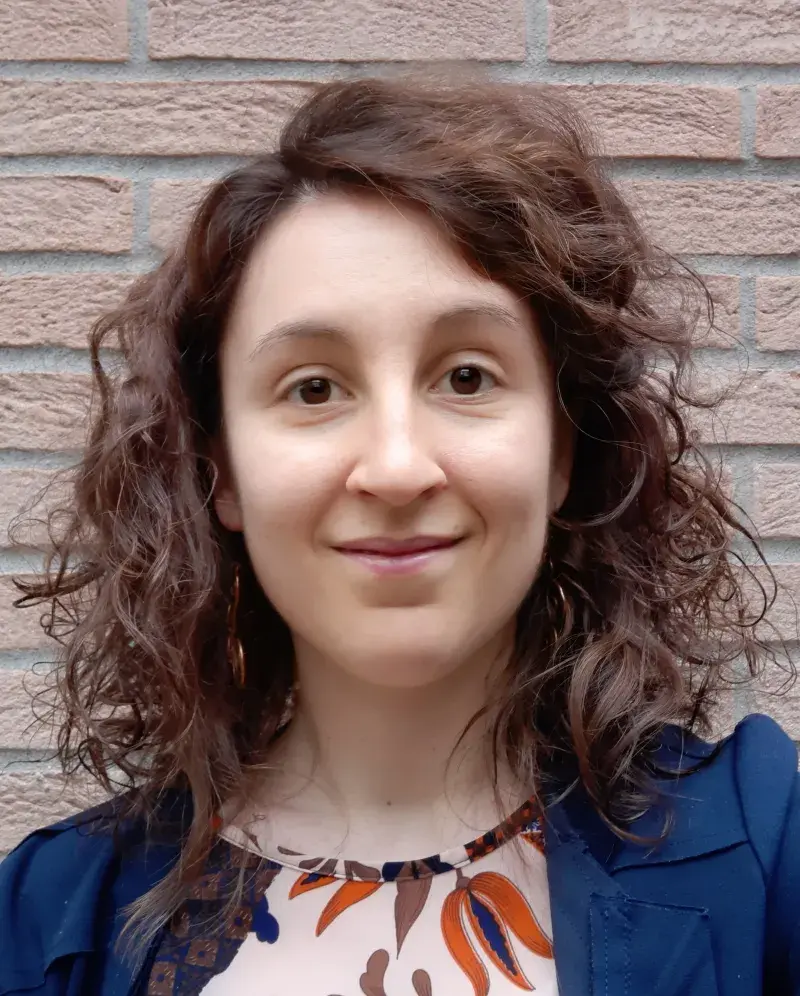 |
Eleonora Ricci, University of Edinburgh |
Title: Combined physics-based and data-driven modelling strategies for gas solubility in polymers |
| 23 Feb |  |
Solveig Aamlid, University of British Columbia |
Title: Phase stability and short-range order in high entropy oxides |
| 02 Mar | Brennon Shanks, Institute of Organic Chemistry and Biochemistry of the Czech Academy of Sciences |
Title: Embracing Uncertainty in Computational Chemistry the Bayesian Way |
|
| 09 Mar |  |
John Wilkinson, UKRI, ISIS Muon Group |
Title: TBC
|
| 16 Mar | Graeme O'Dowd, JLR |
Title: Data-driven Modelling in Battery Management Systems |
|
Past Seminars (2025)
| 1 Dec |  |
Dennis Prangle, Bristol |
Talk Title: Inference for State Space Models with Long Data by Variational Methods |
| 24 Nov |  |
Mark Girolami, Cambridge |
Talk Title: Statistical Finite Element Methods |
| 17 Nov |  |
Simone Köcher, Research Centre Jülich |
Talk Title: Synergy of Theory and Experimental NMR in Energy Material Research |
| 10 Nov | Edwina Yeo, UCL |
Talk Title: A theoretical maximum for bacterial surface adhesion in fluid flow |
|
| 3 Nov |  |
Emma Davis, Warwick |
Talk Title: Modelling infectious diseases: vectors, branching processes and low prevalence dynamics
|
| 27 Oct | Nick Tawn, Warwick |
Talk Title: Annealed Leap-Point Sampler for Multimodal Target Distributions |
|
| 20 Oct |  |
Kirk Bevan, McGill University |
Talk Title: Mapping Device Current Flow Concepts to Electrochemistry
|
| 13 Oct |  |
Luke Davis, Edinburgh |
Talk Title: Stochastic geometry of active matter |
| 06 Oct |  |
Peng Wang, Warwick |
Talk Title: An Emerging Electron Microscopy Imaging Technology for Physical and Biological Sciences: 4D STEM Electron Ptychography |
|
|
|||
| 30 Jun | Jincheng Zhang, Warwick |
Physics-informed machine learning for wind energy applications |
|
| 23 Jun |  |
Graeme Day, Southampton |
Prediction-led Discovery of Functional Molecular Organic Crystals |
| 16 Jun |  |
Eduardo Mendive Tapia, University of Barcelona |
Magnetostructural properties of materials at finite temperature by means of magnetically constrained supercell calculations. |
| 9 June |  |
Louise Dyson, Warwick |
Data-rich but time-poor: challenges in real-time pandemic modelling |
| 2 June |  |
Robert-Jan Slager, Cambridge |
Quantum geometry beyond single flat bands and Euler exact projected entangled pair ground states |
| 19 May |  |
Subhash Lakshminarayana, Warwick |
Computational Methods for Enhancing Power System Resilience to Cyber Attacks Abstract |
| 12 May |  |
Hussein Rappel, Exeter |
Probabilistic Logic for Creating Virtual Populations |
| 28 Apr |  |
Rebecca Nealon, Warwick |
Adaptive Particle Refinement in Smoothed Particle Hydrodynamics |
| 10 Mar |  |
Syma Khalid, Oxford |
Computational microbiology of the E. coli cell envelope: successes and challenges |
| 03 Mar |  |
Ivana Savic, KCL |
First principles simulations of electron-phonon coupling and thermoelectric transport in PbTe |
| 24 Feb |  |
Alice Cobella, Warwick |
Modelling severity of emerging epidemics via state-space models and the lifebelt particle filter. |
| 17 Feb |  |
Ryan Requist, IRB |
Strategies for including non-adiabatic effects in ab initio materials modeling |
| 03 Feb |  |
Annabel Davies, Bristol |
Statistical physics and complex networks in meta-analysis: from random walks to hypergraphs |
| 27 Jan |  |
James Kermode, Warwick |
Applying Scientific Machine Learning at the Electronic and Atomistic Scales to Model Materials Failure Processes |
| 20 Jan |  |
Jakub Lengiewicz, Luxembourg Institute of Science and Technology |
Towards Deep Learning Surrogate Modelling with Uncertainty Quantification in Mechanics |
| 13 Jan | Naomi Hirayama, Warwick |
Theoretical Study on Local Structures in Fe-based Amorphous Alloys |
Past Seminars (2023/24)
Past Seminars (2022/23)
|
Date |
Speaker | Presentation | |
| 19th June |  |
Rocco Martinazzo (Università degli Studi di Milano) |
Quantum dynamics with a multitude of electronic states: from electronic friction to quantum hydrodynamics of coupled e-n systems |
| 12th June | 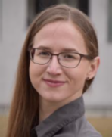 |
Zsuzsanna Koczor-Benda (University of Warwick) |
Computational molecular design for terahertz detection and surface-enhanced applications |
| 5th June |  |
Ferran Brosa Planella (University of Warwick) |
Asymptotic methods for lithium-ion battery models |
| 22nd May | 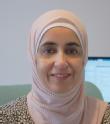 |
Randa Herzallah (University of Warwick) |
Fully Probabilistic Control for Quantum Systems |
| 15th May |  |
Mohsen Mirkhalaf (University of Gothenburg) |
Deep-learning-enhanced multi-scale modelling of composites |
| 24th April |  |
Long Tran-Tranh (University of Warwick) |
Sequential Decision Making Under Resource Constraints and Potential Applications to Materials Sciences |
| 13th March |  |
Edina Rosta (UCL) |
Enhanced Sampling Simulations of Biomolecular Systems |
| 6th March |  |
Yi Yu (University of Warwick) |
Detecting and localising changes in different environments |
| 27th Feb |  |
Matt Ismail (University of Warwick) |
SCRTP facilities update |
|
13th Feb |
 |
Davide De Focatiis (University of Nottingham) |
A constitutive model for high strain rate properties of amorphous polymers |
| 6th Feb 2023 |  |
Marjolein Dijkstra |
Machine learning and Inverse design of soft materials |
| 30th Jan 2023 |
Hannes Holey (Karlsruhe Institute of Technology) |
Towards multiscale modelling of boundary lubrication |
|
| 23rd Jan 2023 |  |
Nils Hertl (University of Warwick) |
Investigating the dynamics of H atom scattering from surfaces with molecular dynamics simulations |
| 16th Jan 2023 |
Tilmann Hickel (Federal Institute for Materials and Research Testing, Berlin) |
Design of finite temperature materials properties enabled by innovative digital concepts |
|
| 9 Jan 2023 |  |
Volker Deringer (University of Oxford) |
Atomic-scale machine learning for inorganic materials chemistry |
| 28 Nov 2022 | 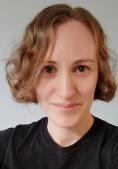 |
Doireann O'Kiely (University of Limerick) |
Moving out of plane: wrinkling and buckling |
| 21 Nov 2022 | 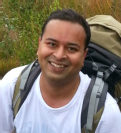 |
Animesh Datta (Warwick University) |
Quantum simulation: An Overview |
| 14 Nov 2022 |  |
Miguel Caro (Aalto University) |
Machine-learning-driven simulation of real carbon materials |
| 7 Nov 2022 | 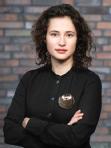 |
Ganna Gryn’ova (Heidelberg Institute for Theoretical Studies) |
Computational Chemistry and Machine Learning of Functional Organic Materials |
| 31 Oct 2022 | 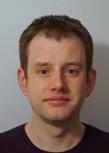 |
Mark Greenaway (Loughborough) |
Resonant tunnelling in graphene-boron nitride transistors |
| 24 Oct 2022 | 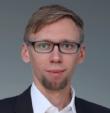 |
Pavlo O Dral (Xiamen University Malaysia) |
Accelerating and Improving Computational Chemistry with Artificial Intelligence / |
| 17 Oct 2022 |
Federico Bosi (UCL) |
The quest for ultralightweight materials: from membranes to architected lattices |
|
| 10 Oct 2022 |  |
Rose K Ceronsky (École |
Extracting Design Principles from Physics-Adapted Machine Learning Problems |
| 3 Oct 2022 |  |
Tess E Smidt (MIT) |
Euclidean Symmetry Equivariant Machine Learning for Atomic Systems - |
Past Seminars (2021/22)
|
Date |
Speaker | Presentation | |
| 6 June 2022 | 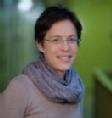 |
Marie Therese Wolfram (University of Warwick) |
Pedestrian Dynamics |
| 30 May 2022 |  |
Gus Hart (Brigham Young University) |
Building Useful Machine-Learned Interatomic Potentials |
| 23 May 2022 |  |
Joseph Prentice (University of Oxford) |
Efficient computation of optical properties of large-scale heterogeneous systems |
| 16 May 2022 |  |
Matthias Sachs (University of Birmingham) |
HAL: Hyperactive Bayesian Learning for Molecular Force Fields |
| 9 May 2022 |  |
Chiara Gattinoni (London South Bank University) |
Electrostatic effects in nanoscale ferroelectrics |
| 14 March 2022 |  |
Olga Bagerra Oxford Brookes University |
Recent developments on discovering structure-function relations of soft tissues. Case study: the knee meniscus |
| 28 February 2022 |
Sarbani Patra University of Warwick |
The dynamics of photodissociation and isomerization reactions – Classical and quantum aspects |
|
| 21 February 2022 |
Emilio Martinez-Paneda Imperial College London |
Predictive modelling of multi-physics material degradation challenges: batteries, corrosion and hydrogen embrittlement |
|
| 14 February 2022 |
Julia Brettschneider University of Warwick |
Exploratory data analysis and non-parametric methods for point pattern analysis for fluorescent microscopic images and digital X-ray detectors |
|
| 07 February 2022 |
Thomas Swinburne Marseille Interdisciplinary Nanoscience Center (CINaM) |
Geometric use of linear models in high accuracy or high throughput simulations of defects |
|
| 31 January 2022 |
Giovanni Porta Politecnico di Milano |
Upscaling of solute transport and surface reactions in porous media |
|
| 24 January 2022 |
|
Celia Reina University of Pennsylvania |
Predicting Non-equilibrium Phenomena: A Journey Through Space and Time Scales |
| 17 January 2022 |
Laurent Béland Queen’s University, Ontario |
Simulating nuclear materials across multiple time and length scales |
|
| 10 January 2022 |
Jerry Wang Carnegie Mellon University |
Let's Get Moving: Modeling and Simulation of Active Matter from the Pico-Scale to the Pedestrian-Scale |
|
| 06 December 2021 |
Juliana Morbec University of Keele |
Exploring surfaces and interfaces with first-principles quantum mechanical simulations |
|
| 29 November 2021 |
Brendan Spillane University of Warwick |
Software, IP and Warwick Innovations |
|
| 23 November 2021 |
Rebecca Nichols University of Oxford |
Enabling functional materials with microscopy and modelling |
|
| 22 November 2021 |
Michele Ceriotti Ecole Polytechnique Federale de Lausanne |
Keynote seminar: Atomistic simulations in the age of machine learning |
|
| 15 November 2021 |
Ryosuke Jinnouchi Toyota Central R&D Labs |
On-the-fly machine-learned inter-atomic potentials: method and applications |
|
| 08 November 2021 |
Jörg Schröder Universität Duisburg-Essen |
Characterization of magneto-electric composites: An algorithmic scale-bridging scheme |
|
| 01 November 2021 |
Sam Magorrian University of Warwick |
Moiré superlattice effects in twisted bilayers of 2D semiconductors |
|
| 25 October 2021 |
University of Oxford |
Exploring reactions mechanisms through automation and machine learning |
|
| 18 October 2021 |
Queen Mary University London |
Sustainably synthesised metal-organic frameworks for sustainability applications |
|
| 11 October 2021 |
Fordham University |
Scientific opportunities of automating materials synthesis: a case study of hybrid organic-inorganic hybrid perovskites |
|
| 04 October 2021 |
Aix Marseilles University |
Nonadiabatic dynamics in the long timescale: the next challenge in computational photochemistry |
|
Past Seminars (2020/21)
For previous speakers please click here.
|
Date |
Speaker | Presentation | |
| 21 June 2021 | 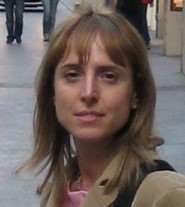 |
Monica Riva |
Flow and transport: the role of Sub-Gaussian features in porous systems |
| 14 June 2021 | 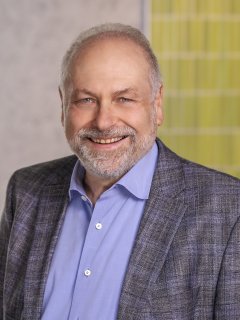 |
Professor Pablo Debenedetti |
The Phase Behaviour of Supercooled Water: A Computational Perspective |
| 7 June 2021 | 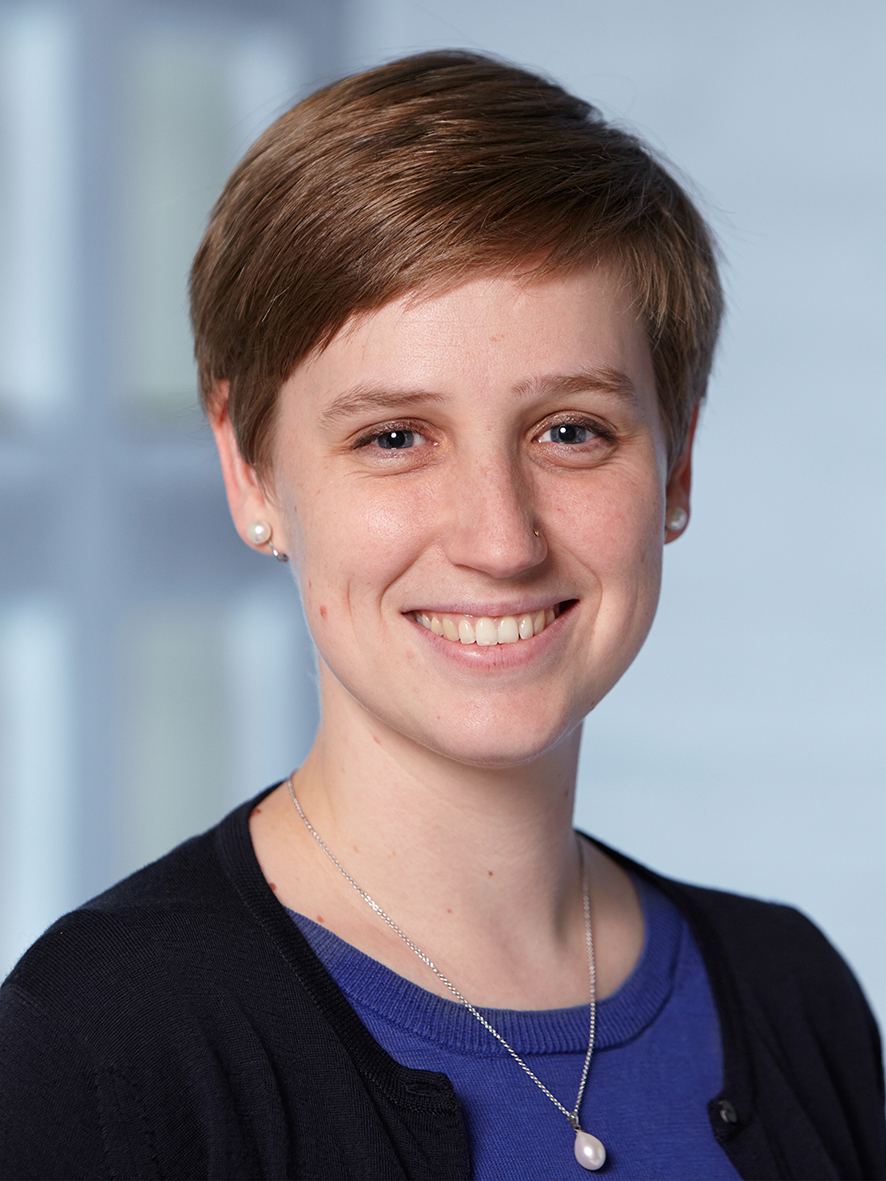 |
ETH Zürich |
Combining Machine Learning and Molecular Dynamics Simulations |
| 24 May 2021 | 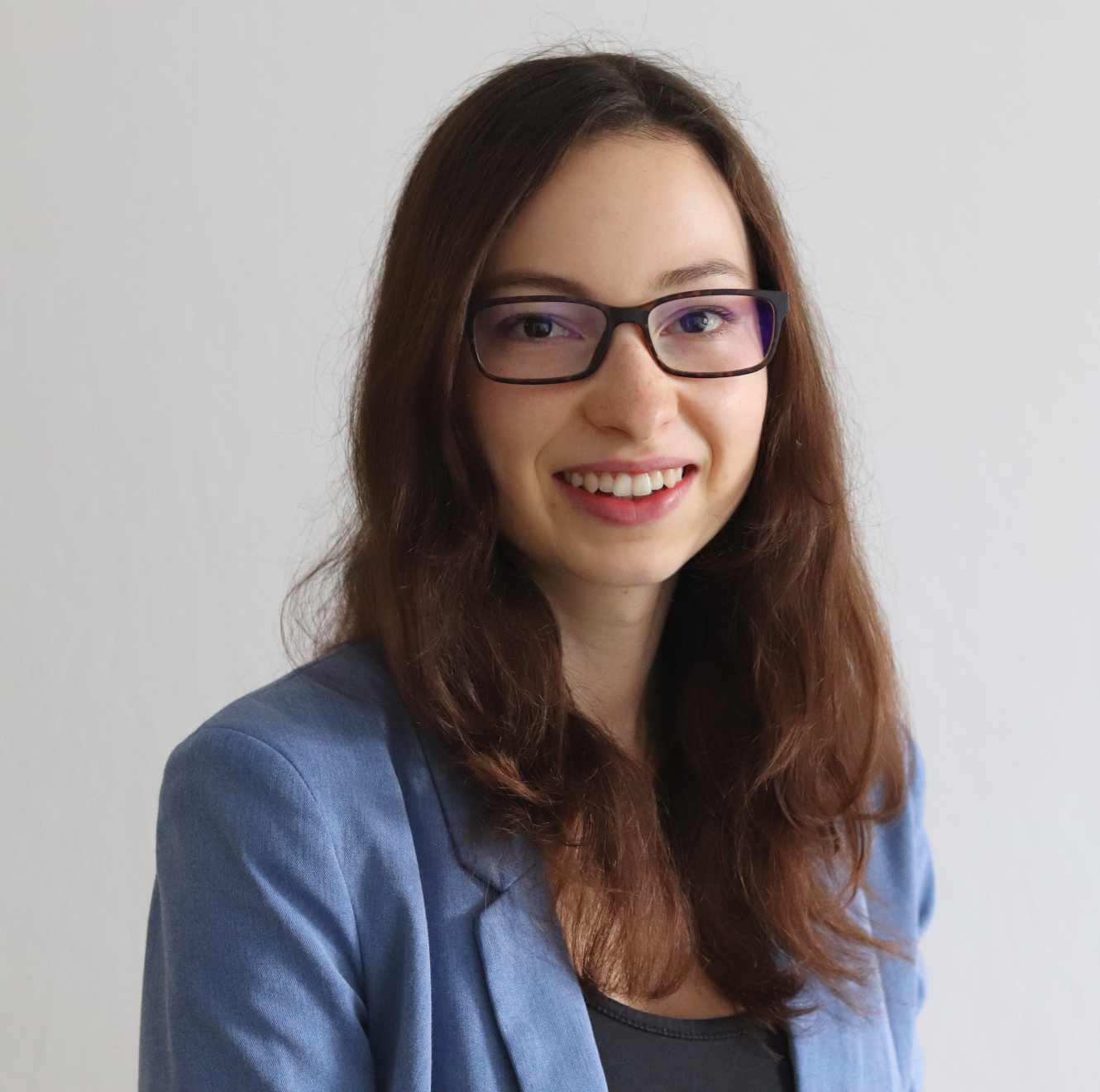 |
University of Warwick |
Deep Learning for Excited States of Molecules: Efficient Prediction of Orbital Energies and Photoemission Spectra |
| 17 May 2021 | 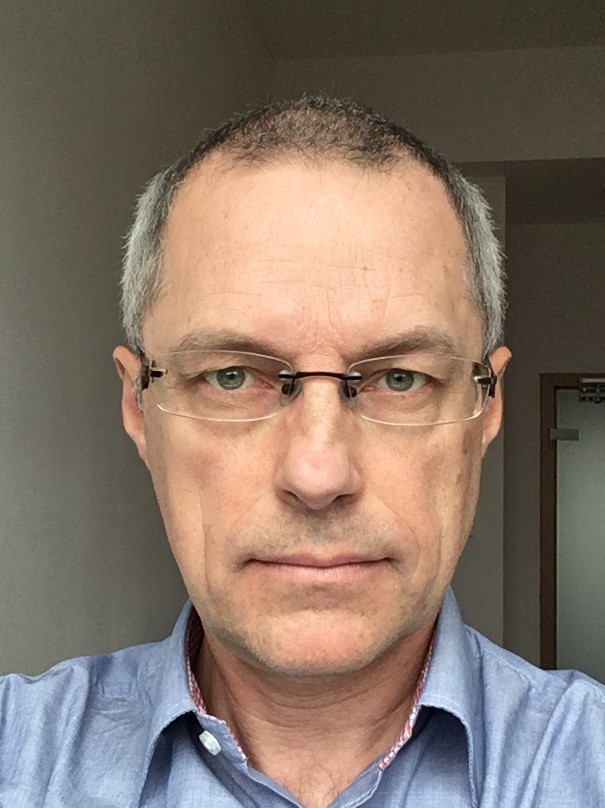 |
IPPT Pan |
Diffuse interface modelling of microstructures and propagating instabilities in shape memory alloys |
| 10 May 2021 | 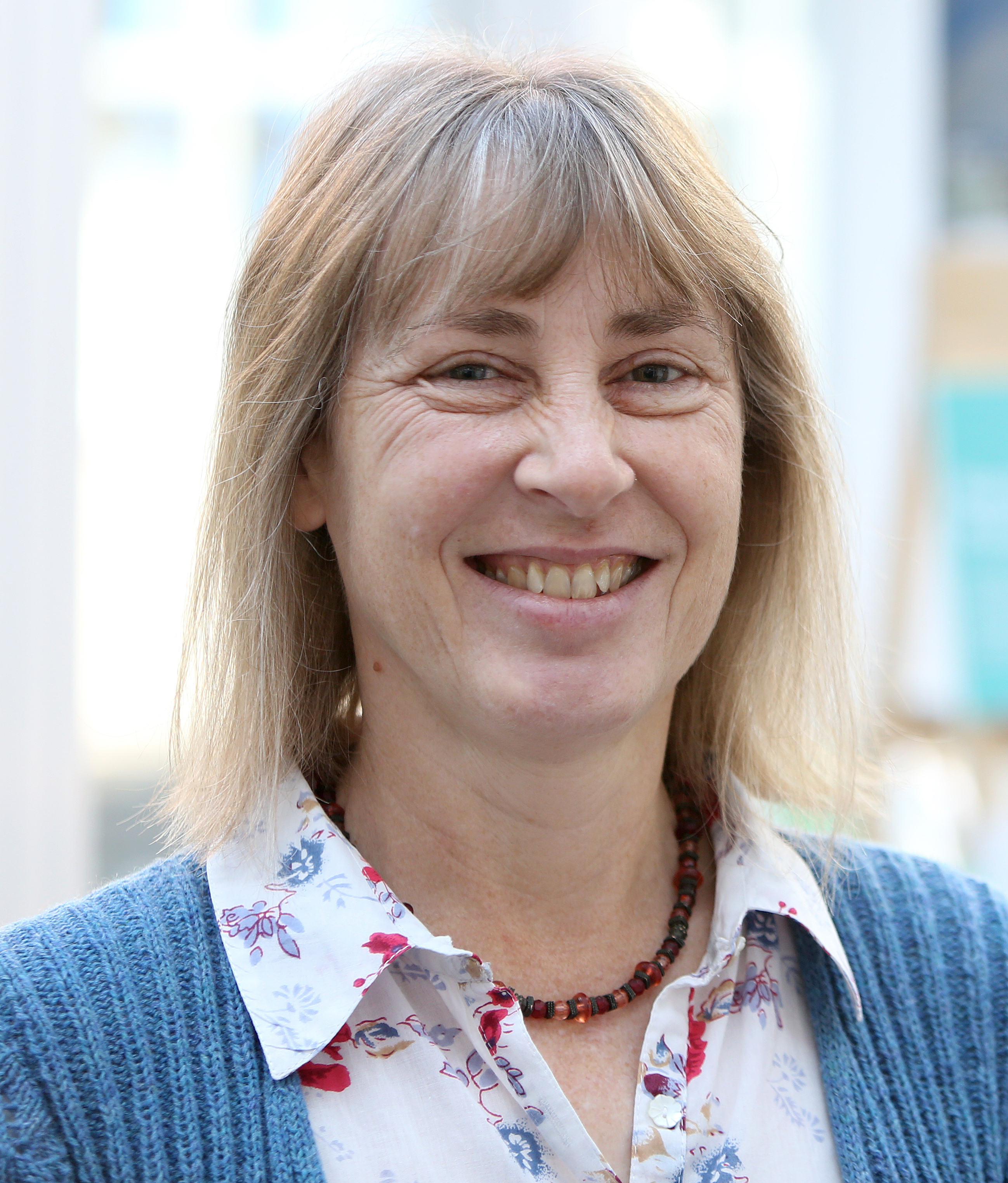 |
University of Nottingham |
TexGen - Open-Source Software for Geometric Modelling of Textile Structures |
| 26 Apr 2021 | 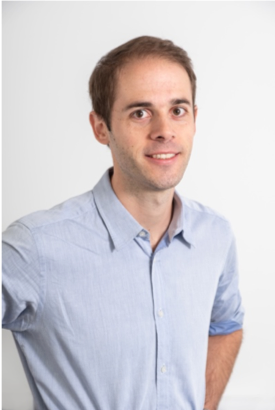 |
Loughborough University |
New Analysis Tools for Electronic Structure Computations: From Numbers to Chemical Insight |
| 25 Mar 2021 |  |
King's College London / London Thomas Young Centre for the Theory and Simulation of Materials |
From Green Tea to Snow Crystals: Understanding Complex Systems with the Aid of Supercomputers |
| 8 Mar 2021 | 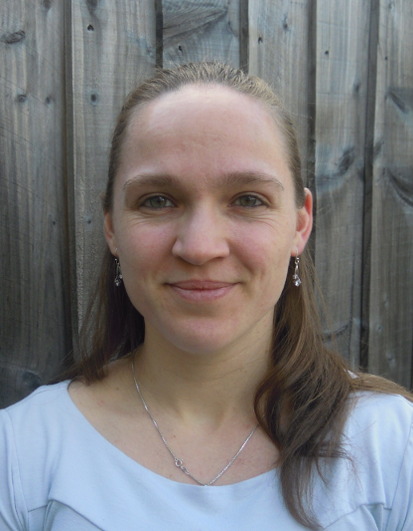 |
Celine Merlet |
Combining NMR, DFT calculations and mesoscopic models to improve our understanding of supercapacitors |
| 1 Mar 2021 |  |
Stefan Klus |
Data-driven analysis of complex dynamical systems |
| 22 Feb 2021 | 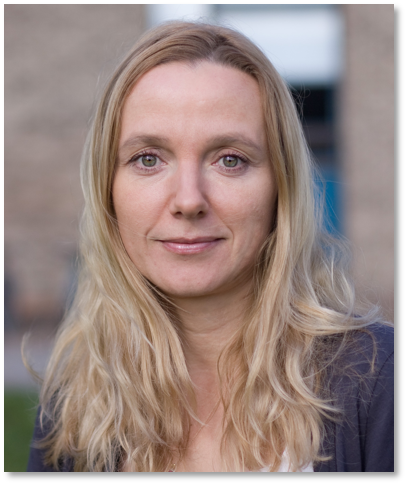 |
University of Nottingham |
A high-throughput computational screening of porous materials for biogas purification |
| 15 Feb 2021 | 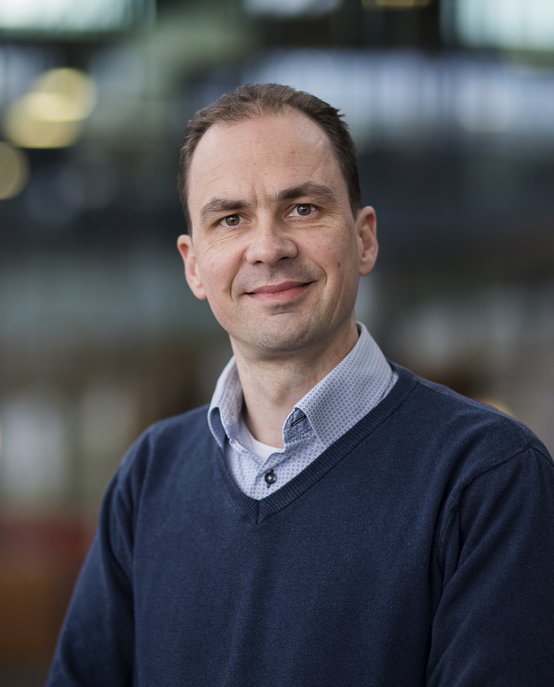 |
University of Technology, Eindhoven |
The mechanical behaviour of tungsten under irradiation and heat loads |
| 8 Feb 2021 |  |
University of Manchester |
Modelling insights into coatings for corrosion protection |
| 1 Feb 2021 | 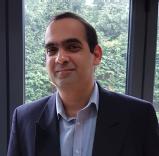 |
Vikram Deshpande |
Micro-architected solids: does toughness characterise fracture? |
| 25 Jan 2021 | 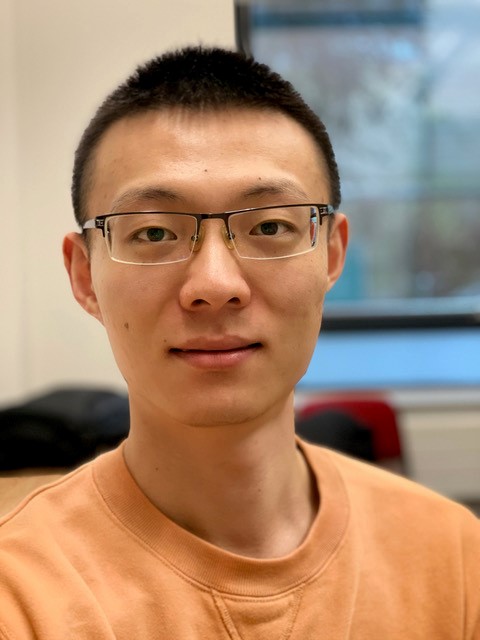 |
Zhen Li |
From deformation potential extraction to thermoelectric transport simulations: |
| 18 Jan 2021 |  |
University of Warwick |
Stochastic activation and bistability in a biological regulatory network |
| 8 Dec 2020 |
|
Bora Karasulu University of Warwick |
First-Principles Modelling of All Solid-State Battery (ASSB) Materials Abstract |
| 30 Nov 2020 |
|
University of Birmingham |
Peculiar solute diffusion mechanisms in hcp-Ti Abstract |
|
16 Nov 2020 |
 |
Forschungszentrum Jülich |
Effects of in vivo conditions on amyloid-βaggregation: computational approaches Abstract |
| 9 Nov 2020 |
|
Cardiff |
Multiscale atomistic modelling applied to materials design and heterogeneous catalysis |
| 2 Nov 2020 |
|
CNAM |
Propagating plastic instabilities in planar architectured materials |
| 26 Oct 2020 |
|
University of Warwick |
Towards Simulated Absorbtion Spectra and Energy Transfer in Molecule-Inorganic Systems |
| 19 Oct 2020 |
|
University of Southampton |
Ubermag: Interactive micromagnetic simulations in Jupyter |
| 12 Oct 2020 |
|
University of Warwick |
Dislocation distributions at finite temperature |
| 5 Oct 2020 | 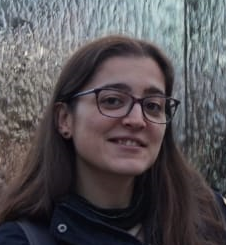 |
University of Warwick |
Feedback control of falling liquid films using a hierarchical model approach |
Past Seminars (2019/20)
Past Seminars (2018/19)
| Date | Speaker | Presentation | |
| 24 June 2019 |
Theory & Simulation of Condensed Matter Group, Physics, King's College London |
Size and shape dependence of activity of metallic nanoparticles
|
|
| 17 June 2019 |  |
School of Computing, University of Leeds |
Interactive visualization for the design, prototyping and development of research software
|
| 10 June 2019 |
College of Engineering, Swansea University |
Mechanics of geometrically disordered cellular materials
|
|
| 03 June 2019 |
Department of Psychology, University of Warwick |
A Bayesian and Frequentist Multiverse Pipeline for Multinomial Processing Tree Models – Applications to Recognition Memory
|
|
| 20 May 2019 |
Institute for Future Transport and Cities, |
Atomic Scale Modelling of Diffusion in Energy Materials
|
|
| 13 May 2019 |  |
Mathematics Institute, University of Warwick |
Physics+data-driven interatomic potentials based on permutation-invariant polynomials
|
| 29 April 2019 |
University of Leeds |
Atomistic spin dynamics with a quantum thermostat
|
|
| 11 March 2019 |
Fritz-Haber Institute, Berlin |
Nuclear quantum effects in weakly bonded systems
|
|
| 4 March 2019 |
Warwick Medical School |
The light microscopy imaging pipeline at Warwick Medical School
|
|
| 25 Feb 2019 |
Institute for Risk and Uncertainty, Liverpool |
Connections between Rare-Event Simulation and Bayesian Inference
|
|
| 18 Feb 2019 |
John Huber – University of Oxford, Department of Engineering Science. Ananya Renuka Balakrishna – University of Minnesota, Department of Aerospace Engineering and Mechanics |
Phase field methods for simulating ferroelectrics and other materials
|
|
 |
|||
| 11 Feb 2019 |  |
CEA Saclay, France |
Free energy landscape of point defects in body centered cubic metals |
| 4 Feb 2019 |
|
Warwick Manufacturing Group |
Multi-agent Deep Reinforcement Learning with Extremely Noisy Observations
|
| 28 Jan 2019 |
Babraham Institute, Cambridge |
Modelling of Chromosome Structure and Function
|
|
| 21 Jan 2019 |
|
Warwick Mathematics Institute / Turing Institute |
Predicting risk of hospital admission and readmission of Scottish population; Measuring Sample Quality with diffusions
|
| 14 Jan 2019 |  |
Elementary Particle Physics Group, Warwick Physics |
Reconstruction of neutrino-induced events in Liquid-Argon Time-Projection Chamber (LArTPC) Detectors
|
| 3 Dec 2018 |
Institute for the Physics of Living Systems, University College London |
Minimal coarse-grained models for biological assembly
|
|
| 26 Nov 2018 |
School of Engineering, University of Warwick |
Stochastic Simulation of Reaction-Diffusion Systems
|
|
| 19 Nov 2018 |
Faculty of Engineering, Department of Materials, Imperial College |
Simulating charged defects in 2d materials: how we taught electronic screening to machines
|
|
| 12 Nov 2018 |
Warwick Centre for Predictive Modelling, School of Engineering, University of Warwick |
Modifying the bandstructure of half-Heuslers to improve their thermoelectric power factor
|
|
| 05 Nov 2018 |
Faculty Research Centre in Flow Measurement and Fluid Mechanics, Coventry University |
Monte Carlo methods for massively parallel architectures
|
|
| 29 Oct 2018 |
|
Warwick Centre for Predictive Modelling, University of Warwick |
Electron-spin mediated distortion in metallic systems
|
| 15 Oct 2018 |
Warwick Centre for Predictive Modelling, University of Warwick |
First principles design of new multiferroic materials
|
|
| 08 Oct 2018 |  |
Andrew Davis UK Atomic Energy Authority, Culham Centre for Fusion Energy, Abingdon |
High Performance and CAD based Radiation Transport
|
Past Seminars (2017/18)
| Date | Speaker | Presentation | |
| 25 June 2018 |
|
School of Mathematics and Physics |
Variations on kernel density estimation |
| 18 June 2018 |
|
Department of Mathematical Sciences |
A performance portable framework for molecular simulations |
| 11 June 2018 |
|
Physics Department |
A predilection for precise prediction: trying to model materials reliably |
|
21 May 2018 |
|
School of Biological and Chemical Sciences, Queen Mary University of London (QMUL) |
Modelling aggregation-induced emission in organic crystals |
| 16 May 2018 |
University of Texas at Austin |
Correlating structure and function for nanoparticle catalysts Abstract Slides |
|
| 30 Apr 2018 |
Chemical and Process Engineering |
Multiscale modelling of surfaces and interfaces |
|
| 30 Apr 2018 |
|
Warwick Mathematics Institute |
Predicting Rare Events via Large Deviations Theory: Rogue Waves and Motile Bacteria Abstract Slides |
| 12 Mar 2018 |
Warwick Centre for Predictive Modelling, School of Engineering, University of Warwick |
Large-scale real-space electronic structure calculations Abstract Slides |
|
| 05 Mar 2018 |
Department of Statistics, University of Oxford |
Biologically inspired de novo protein structure prediction Abstract Slides |
|
| 26 Feb 2018 |
Mechanical Engineering, University of Michigan, Ann Arbor, USA |
Large-scale real-space electronic structure calculations Abstract Slides |
|
| 19 Feb 2018 |
Tribology and Wear, Fraunhofer IWM, Freiburg |
Tribology of diamond and silicon: atomic-scale insights from computers simulations Abstract Slides |
|
| 12 Feb 2018 |
Department of Aeronautics, Faculty of Engineering, Imperial College London |
Uncertainty Quantification and Aircraft Engines Abstract Slides |
|
| 05 Feb 2018 |
Department of Physics and Astronomy, University of Sheffield |
Unusual Dynamic Processes in Polymer Nanocomposites Abstract Slides |
|
| 29 Jan 2018 |
Warwick Centre for Predictive Modelling, School of Engineering, University of Warwick |
Transport in two-dimensional materials Abstract Slides |
|
| 22 Jan 2018 |
Met Office |
Modelling clouds for weather, climate and beyond… Abstract Slides |
|
| 15 Jan 2018 |
Faculty of Engineering, University of Bristol |
Multi-scale cellular automata finite element (CAFE) framework for fracture in heterogeneous materials: to exascale via coarrays/MPI hybrid programming Abstract Slides |
|
| 4 Dec 2017 |  |
Ben Chapman |
Ion cyclotron emission as a diagnostic of the time evolution |
 |
Demetris Marnerides WCPM/WMG |
Deep Learning for the High Dynamic Range Imaging Pipeline |
|
| 27 Nov 2017 |  |
Magnus Richardson Zeeman Mathematical Biology Institute, Warwick |
Neurons, Synapses and neuromodulators |
| 23 Nov 2017 |
Bálint Aradi |
DFTB+, the fast way of doing quantum mechanics Abstract Slides |
|
| 06 Nov 2017 |  |
Felix Hofmann Department of Engineering Science University of Oxford |
Atomic Scale Defects: Probing Structure and Function Abstract Slides |
| 30 Oct 2017 |  |
Laura Ratcliff, Imperial College |
Upscaling DFT Capabilities for the Many Thousand Atoms Regime |
 |
Jolyon Aarons, Warwick Physics |
Metallic DFT On Nanoparticles with Thousands of Atoms |
|
 |
Luigi Genovese, L_Sim, CEA Grenoble |
Opportunities from Accurate and Efficient Density Functional Theory |
|
| 23 Oct 2017 |  |
Juergen Branke Warwick Business School |
|
| 16 Oct 2017 |  |
Reinhard Maurer Department of Chemistry, University of Warwick |
Controlled Self-Assembly, Switching, and Catalysis: |
| 9 Oct 2017 |  |
Gabriele Sosso Department of Chemistry, Unviersity of Warwick |
Predicting Crystal Nucleation Rates via Atomistic Simulations: The Case of Ice Nucleation Abstract Slides |
Past Seminars (WCPM & CSC, 2016/17)
| Date | Speaker | Presentation | |
| 26 June 2017 |
WCPM & School of Engineering, University of Warwick |
Modular Bayesian uncertainty assessment for structural health monitoring
|
|
|
WCPM & School of Engineering, University of Warwick |
Quantum transport simulations for understanding the thermoelectric effect in nanocomposites
|
||
| 19 June 2017 |
Research Software Engineering, University of Sheffield |
Bad software and how it's ruining your research
|
|
| 12 June 2017 |
Mathematics Institute and Center for Complexity Science, University of Warwick |
Oscillatory kinetics in cluster-cluster aggregation
|
|
| 05 June 2017 |
Department of Chemistry, University of Memphis |
The role of transition metals in the structure and reactivity of astrochemicals
|
|
| 22 May 2017 |
Engineering and Materials Science, Queen Mary University of London |
Cracking me softly – the mechanics of hyperelastic Kirigami structures
|
|
| 15 May 2017 |
Physical Sciences, University of Kent |
First principles design of new multiferroic materials
|
|
| 13 Mar 2017 |
Warwick Life Sciences |
Design principles of cellular systems from evolutionary and systems dynamics perspectives |
|
| 6 Mar 2017 |
|
Reading Chemistry |
Computational thermodynamics: how to calculate phase diagrams without the fuss |
| 27 Feb 2017 |
Karlsruhe Institute of Technology |
Contact and cavitation: Computer models for tribological processes |
|
| 20 Feb 2017 |
|
Warwick Physics |
The dynamics and flexibility of biomedically important proteins: a combined computational/experimental approach to tackle antimicrobial resistance (AMR)
|
| 13 Feb 2017 |
|
Warwick Maths / WMG |
Computational and mathematical modelling of acoustic linears in aircraft engines
|
| 6 Feb 2017 |
|
Head of Research Software Development, UCL |
Computational Science As A Service: A new institutional model for research software engineering
|
| 30 Jan 2017 |
|
University of Bristol |
What is good research software, how can it be engineered, and is it deliverable within the constraints of academic projects?
|
| 23 Jan 2017 |
|
Connected Systems Research Group, School of Engineering, Warwick |
Exploring the Potential for FPGA Scientific Computing Research at Warwick
|
| 16 Jan 2017 |
James Elliot |
Interfacial barriers to thermal transport in carbon nanomaterials and polymer-nanotube composites: a molecular modelling study
|
|
| 5 Dec 2016 |
|
Christopher Robertson |
Diabatization strategies for non-adiabatic dynamics: photodissociation of acetylene and NO/Au 3 scattering
Abstract |
| 28 Nov 2016 |
Ali Raeini |
||
| 21 Nov 2016 |
|
David Packwood |
|
| 14 Nov 2016 |
Steve Fitzgerald |
||
| 07 Nov 2016 |
|
Mikhail Poluektov |
|
| 31 Oct 2016 |
Paola Carbone |
||
| 24 Oct 2016 |
David Quigley |
||
| 17 Oct 2016 |  |
Tom Hudson Mathematics Institute, University of Warwick |
|
Past Seminars 2015/2016
| Date | Speaker | Presentation | |
| 31 May 2016 |  |
Ben Graham Department of Statistics, University of Warwick |
|
| 24 May 2016 |   |
Duncan Lockerby School of Engineering, University of Warwick David Stephenson School of Engineering, University of Warwick |
Accelerating a multiscale continuum-particle fluid dynamics model
with on-the-fly machine learning
|
| 17 May 2016 |
Gareth Conduit
Department of Physics, University of Cambridge |
||
| 10 May 2016 |
 |
Torgyn Shaikhina
School of Engineering, University of Warwick |
Machine Learning for predictive modelling based on small biomedical and clinical data
Abstract (PDF), Slides (PDF) |
| 3 May 2016 |
Department of Statistics, University of Warwick
|
Bayesian inference and model selection for stochastic
epidemics and other coupled hidden Markov models
(with special attention to epidemics of
|
|
| 26 Apr 2016 |
Ariel Lozano
Basque Centre for Applied Mathematics |
Bond-selective chemical reactivity from first principles:
|
|
| 8 Mar 2016 |
Judith Rommel
Department of Chemistry, University of Cambridge |
Predictive Multi-scale Modelling - an Interdisciplinary
Perspective and the Case of Density Embedding Methods
|
|
| 1 Mar 2016 |
Department of Physics, University of Warwick
|
Quantum Engineering for electrons and spins
|
|
| 16 Feb 2016 |
Igor Khovanov
School of Engineering, University of Warwick |
Dynamics of Large Fluctuations: from Chaotic Attractors to Ion Channels |
|
| 9 Feb 2016 |
Department of Computer Science,
University of Warwick
|
Image clustering based on camera fingerprints |
|
| 2 Feb 2016 |  |
Scott Habershon Department of Chemistry, University of Warwick |
Progress and perils in predictive computational catalysis Abstract (PDF) |
| 26 Jan 2016 |
 |
Charles Gadd
Warwick Centre for Predictive Modelling, University of Warwick |
Uncertainty Quantification with Gaussian Process Latent
Variable Models |
| 19 Jan 2016 |
Warwick Centre for Predictive Modelling,
University of Warwick |
Uncertainty Quantification Using Deep Gaussian Processes
and Variational Bayesian inference
|
|
| 8 Dec 2015 |
School of Mathematical Sciences, University of Nottingham
|
Novel stochastic thermostats for rigid body dynamics
|
|
| 26 Nov 2015 |
Technische Universität München |
Predictive Coarse-Graining Abstract (PDF), Slides (PDF) |
|
| 17 Nov 2015 |
Department of Physics, University of Cambridge
|
Computational Materials Discovery meets Experiment Abstract (PDF) |
|
| 10 Nov 2015 |
Savvas Triantafyllou |
Towards a multiscale framework for robust simulation of inelastic dynamic processes Abstract (PDF), Slides (PDF) |
|
| 3 Nov 2015 |
Keith Refson |
Reliable Knowledge: How far can we trust electronic structure simulations? Abstract (PDF) |
|
| 27 Oct 2015 |
Manuel Aldegunde |
Exchange-Correlation Functional with Uncertainty
Quantification Capabilities for Density Functional Theory |
|
| 20 Oct 2015 |
Vahid Niasar |
Pore-scale analysis of dynamics of two-phase flow
in porous media |
|
| 13 Oct 2015 |
|
Stela Makri |
Dimensionality Reduction Methods in Predictive Modelling |
| 13 Oct 2015 |
|
Louis Ellam |
Approximate Bayesian Inference for Machine Learning |
| 6 Oct 2015 |
Matteo Icardi |
On the predictive capabilities of multiphase Darcy flow |
|
Past Seminars 2014/2015
| Date | Speaker | Presentation | |
| 25 Jun 2015 |
Nicholas Hine |
Excited state calculations and theoretical spectroscopy of complex nanomaterials using Linear-Scaling Density Functional Theory Abstract (PDF), Slides (PDF) |
|
| 18 Jun 2015 |
Andrew Stuart |
Probabilistic Numerical Methods for Deterministic Differential Equations Abstract (PDF), Slides (PDF) |
|
| 11 Jun 2015 |
Gábor Csányi |
Applying machine learning to quantum mechanics Abstract (PDF), Slides (PDF) |
|
| 4 Jun 2015 |
Shiwei Lan |
Sampling constrained probability distributions using Spherical Augmentation Abstract (PDF), Slides (PDF) |
|
| 28 May 2015 |
Łukasz Figiel |
Computational modelling for performance improvement of polymer nanocomposites Abstract (PDF), Slides (PDF) |
|
| 15 May 2015 |
Peter Brommer |
Uncertainties in classical effective potentials: sources and quantification strategies Abstract (PDF), Slides (PDF) |
|
| 7 May 2015 |
Mark Rodger |
Predictive Modelling: a view from the atomic level Abstract (PDF), Slides (PDF, PPTX) |
|
| 30 Apr 2015 |
David Quigley |
Modelling crystal nucleation and growth Abstract (PDF), Slides (PDF, PPTX) |
|
| 23 Apr 2015 |
Claudia Schillings |
Scaling Limits in Computational Bayesian Inversion Abstract (PDF), Slides (PDF) |
|
| 12 Mar 2015 |
Julie Staunton |
Density functional theory and slowly varying fluctuations at finite temperature to describe alloy and magnetic phase diagrams Abstract (PDF), Slides (PDF) |
|
| 5 Mar 2015 |
James Kermode |
Molecular Dynamics with on-the-fly Machine Learning of Quantum |
|
| 26 Feb 2015 |
Mark Girolami |
Differential Geometric MCMC Methods |
|
| 19 Feb 2015 |
Akeel Shah |
Efficient emulation of high-dimensional outputs using manifold |
|
| 12 Feb 2015 |
Neophytos Neophytou |
Electronic, thermal, and thermoelectric transport in nanostructures |
|
| 5 Feb 2015 |
Aretha Teckentrup |
Quasi- and Multilevel Monte Carlo Methods for Bayesian Inverse |
|
| 29 Jan 2015 |
Charo del Genio |
Constructing and sampling graphs with specified joint-degree matrix |
|
| 22 Jan 2015 |
Alfonso Jaramillo |
Predictive Modelling of Riboregulatory Circuits to Re-engineer Living Cells |
|
| 15 Jan 2015 |  |
Tim Sullivan |
Consistency, Robustness, and Brittleness of Bayesian Inference |
| 8 Jan 2015 | 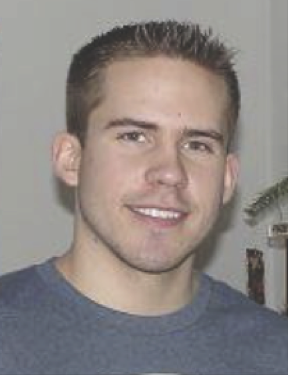 |
Jesper Kristensen Applied and Engineering Physics, Cornell University, Ithaca NY |
Uncertainty Quantfication with Surrogate Models in Alloy Modelling |
























